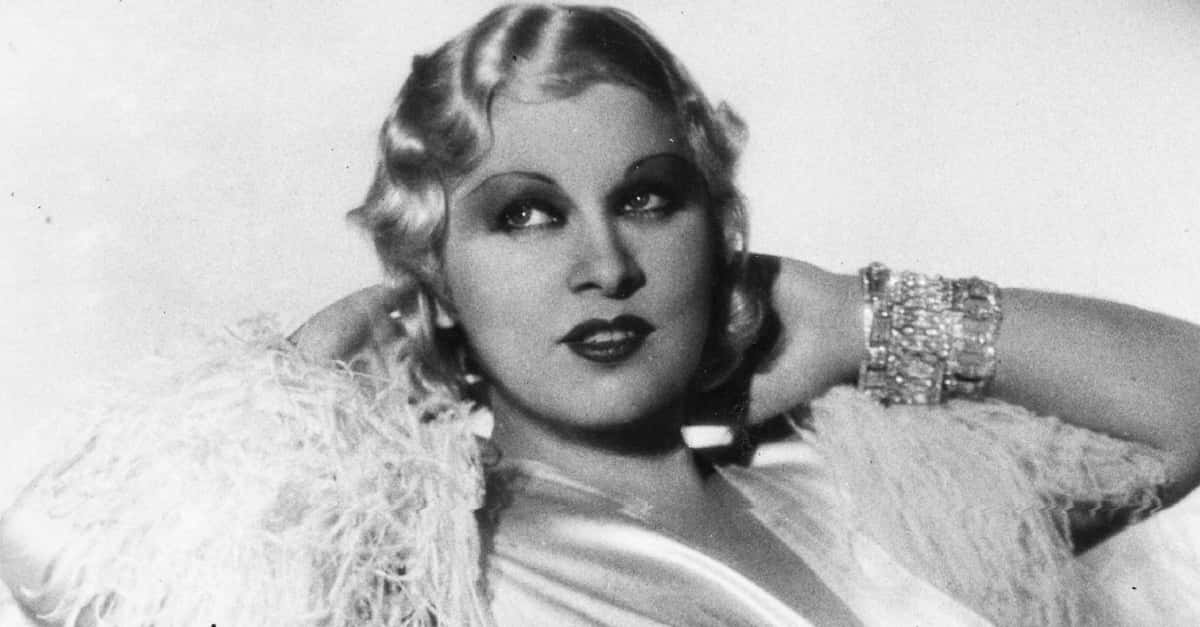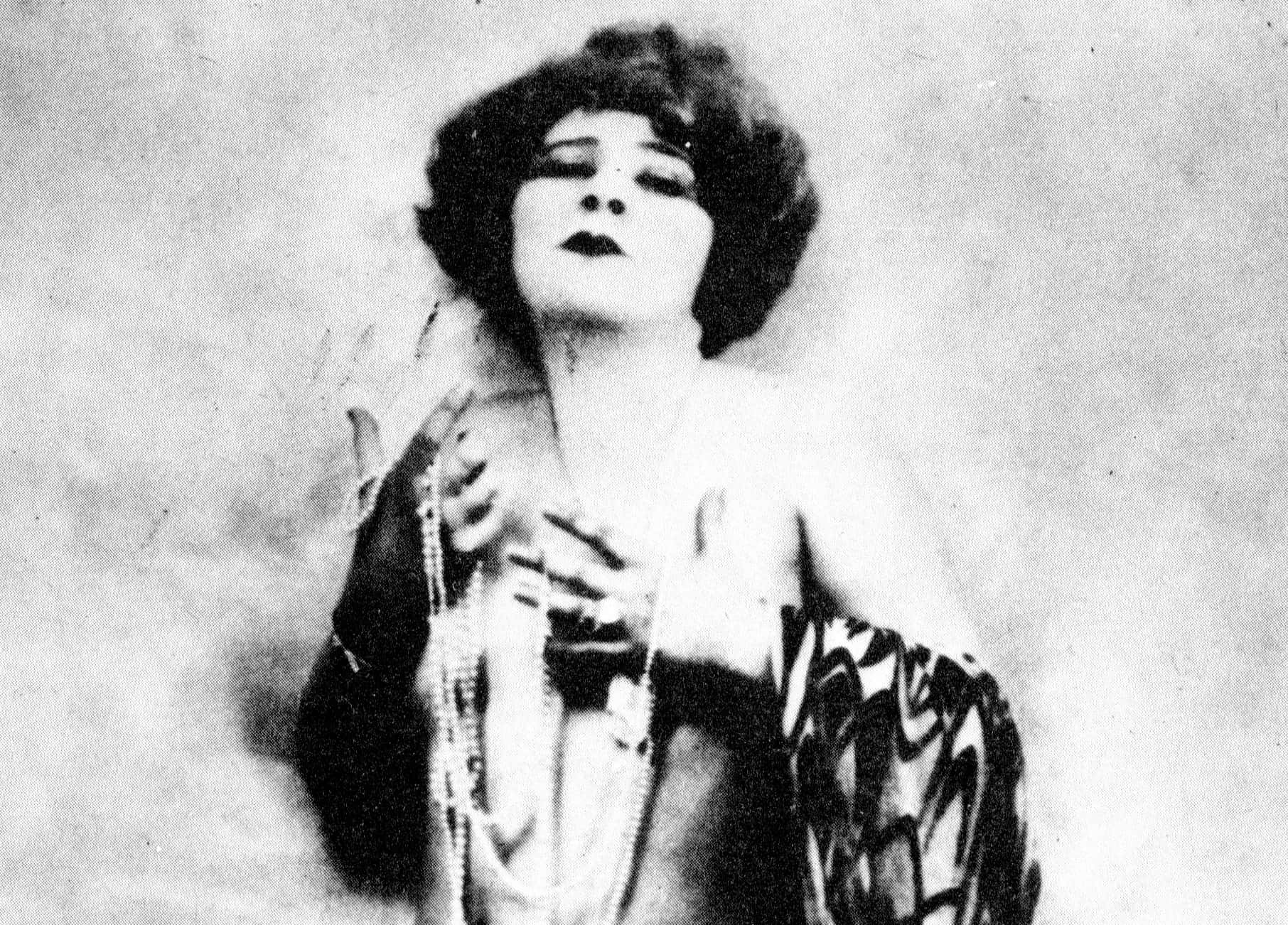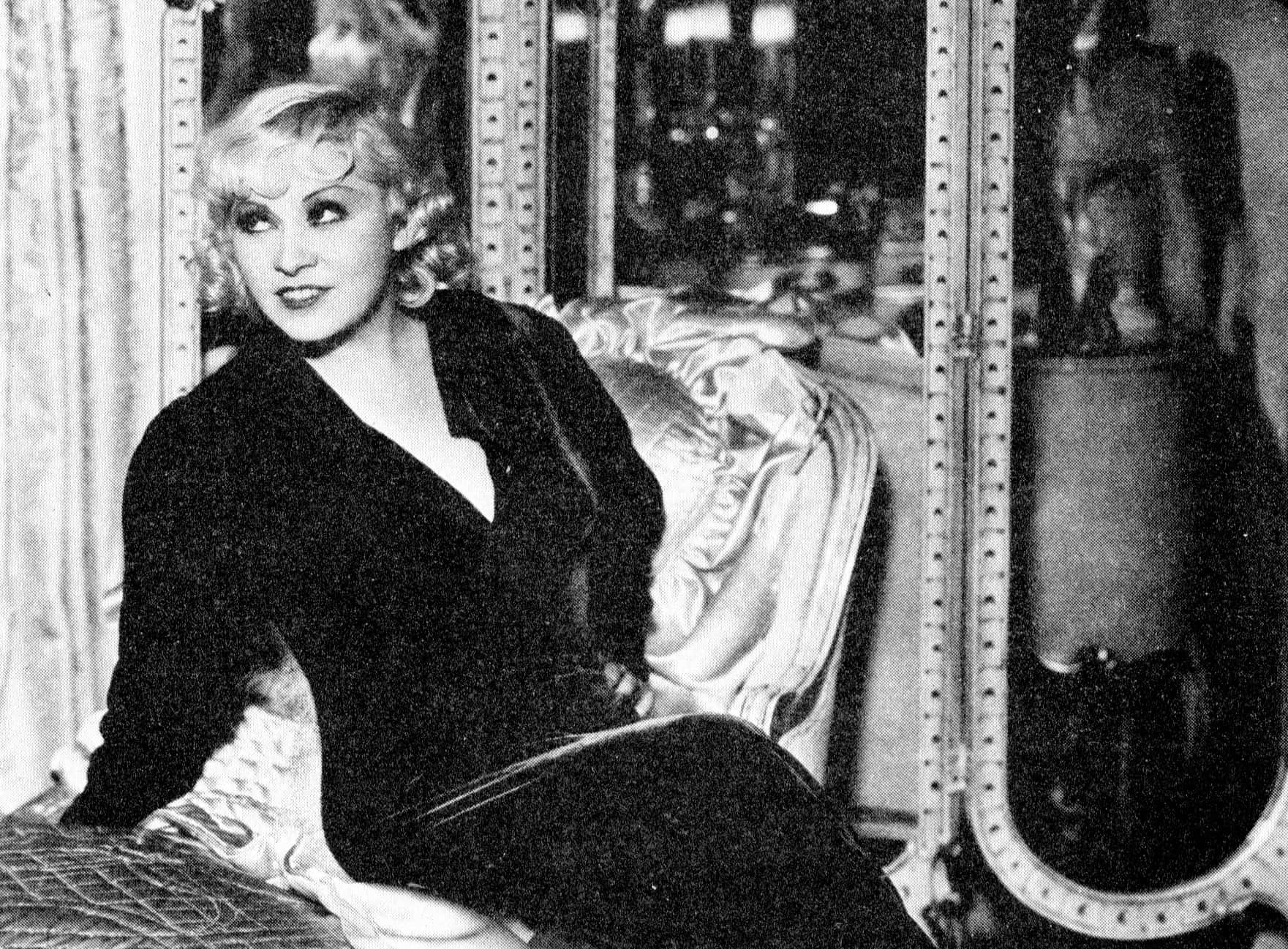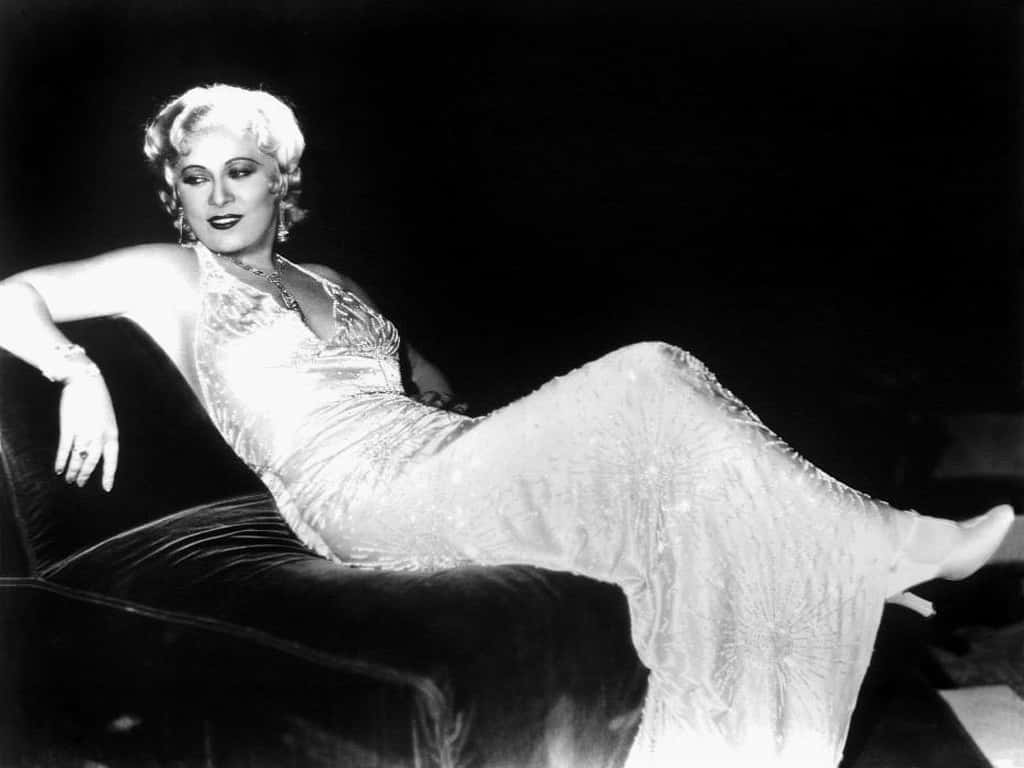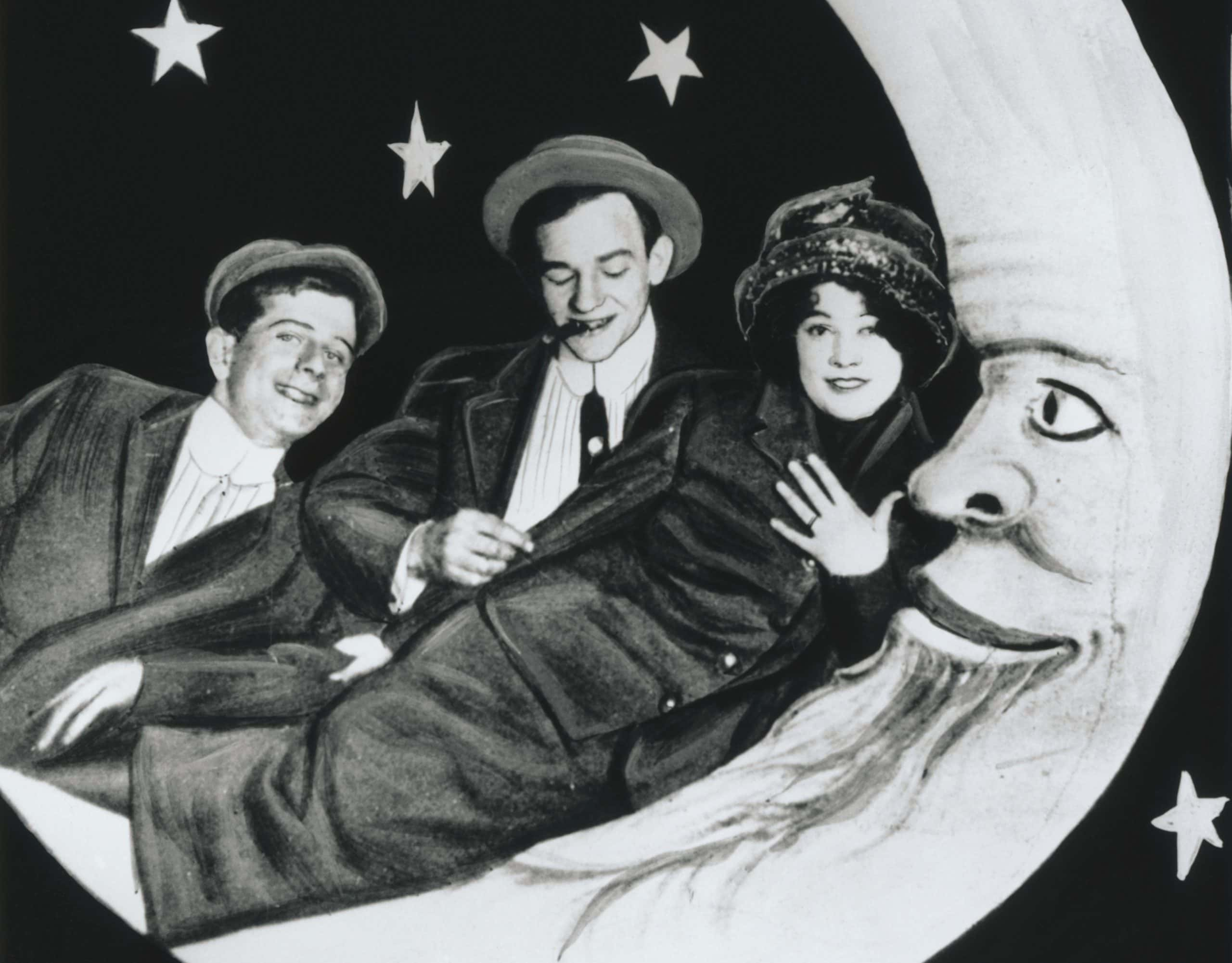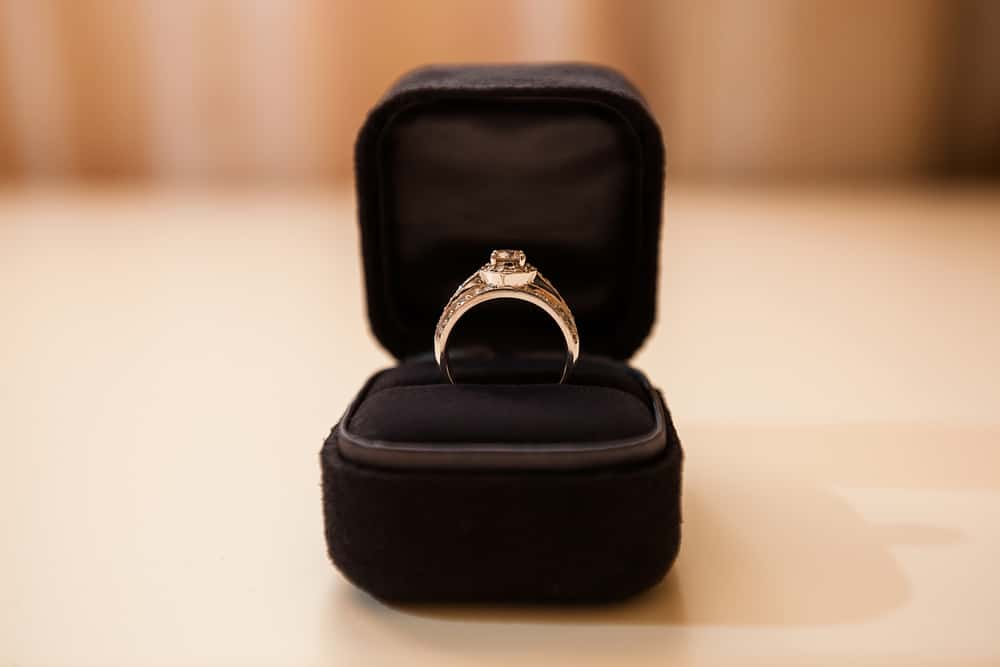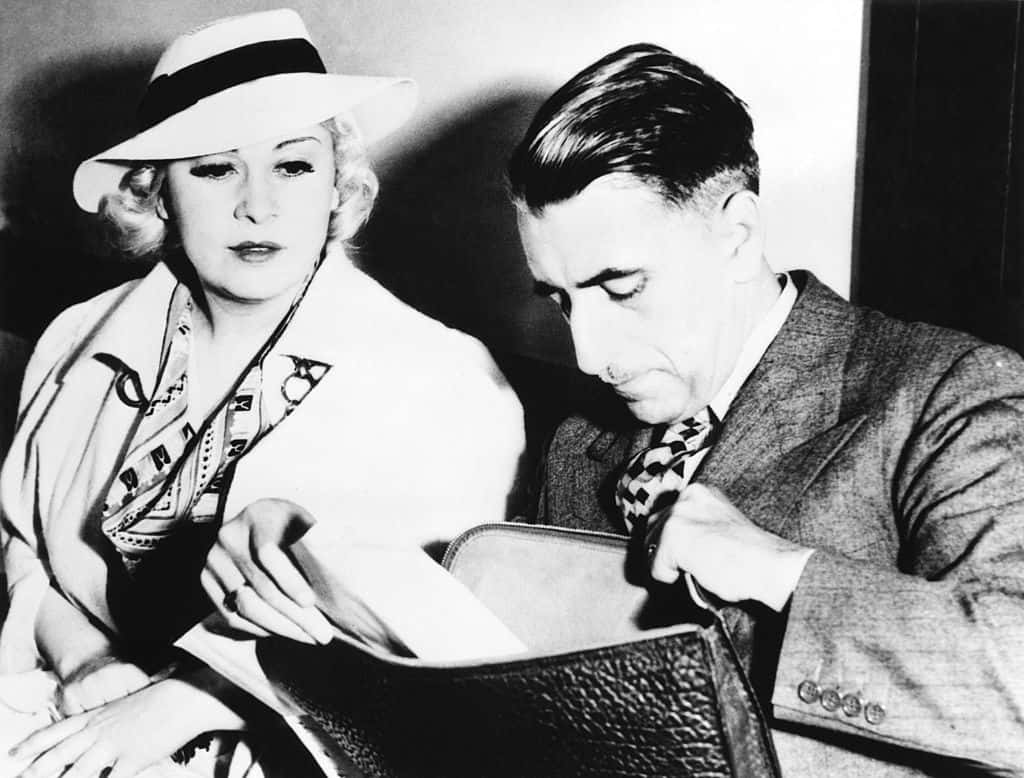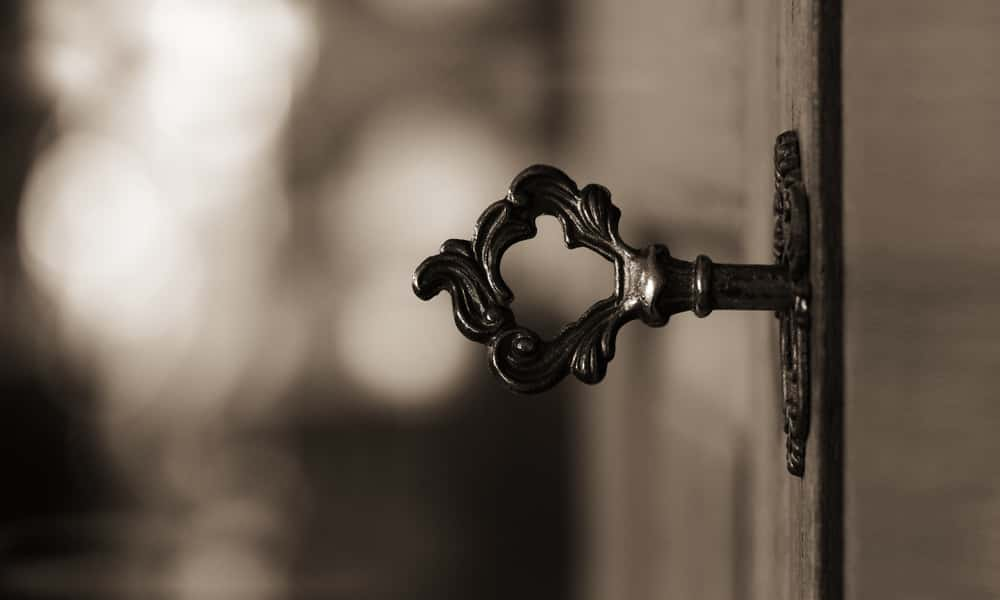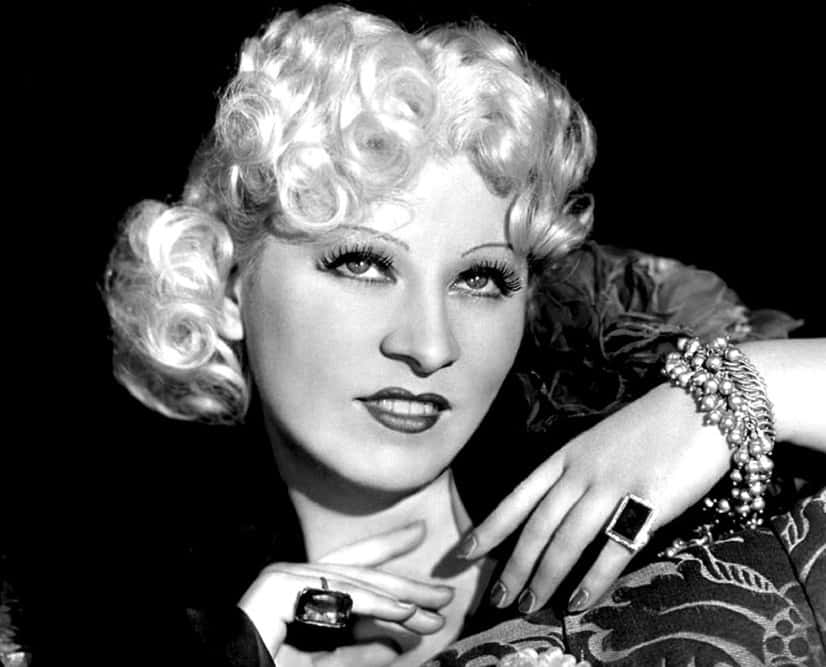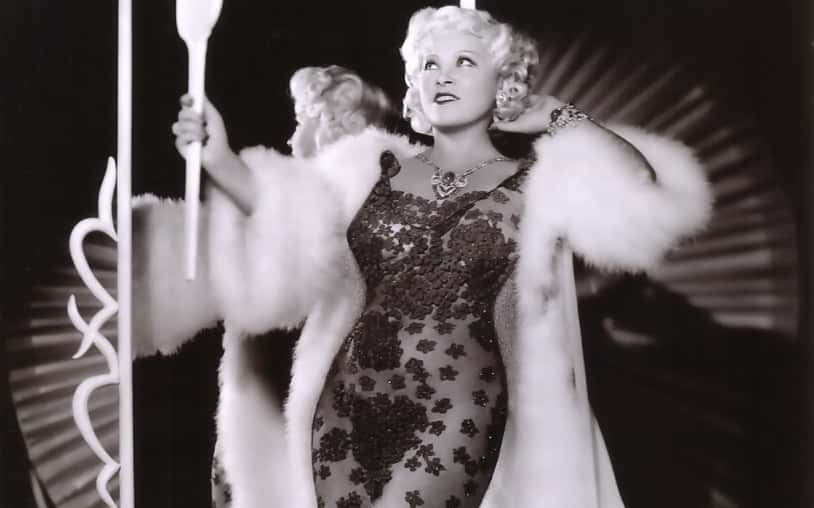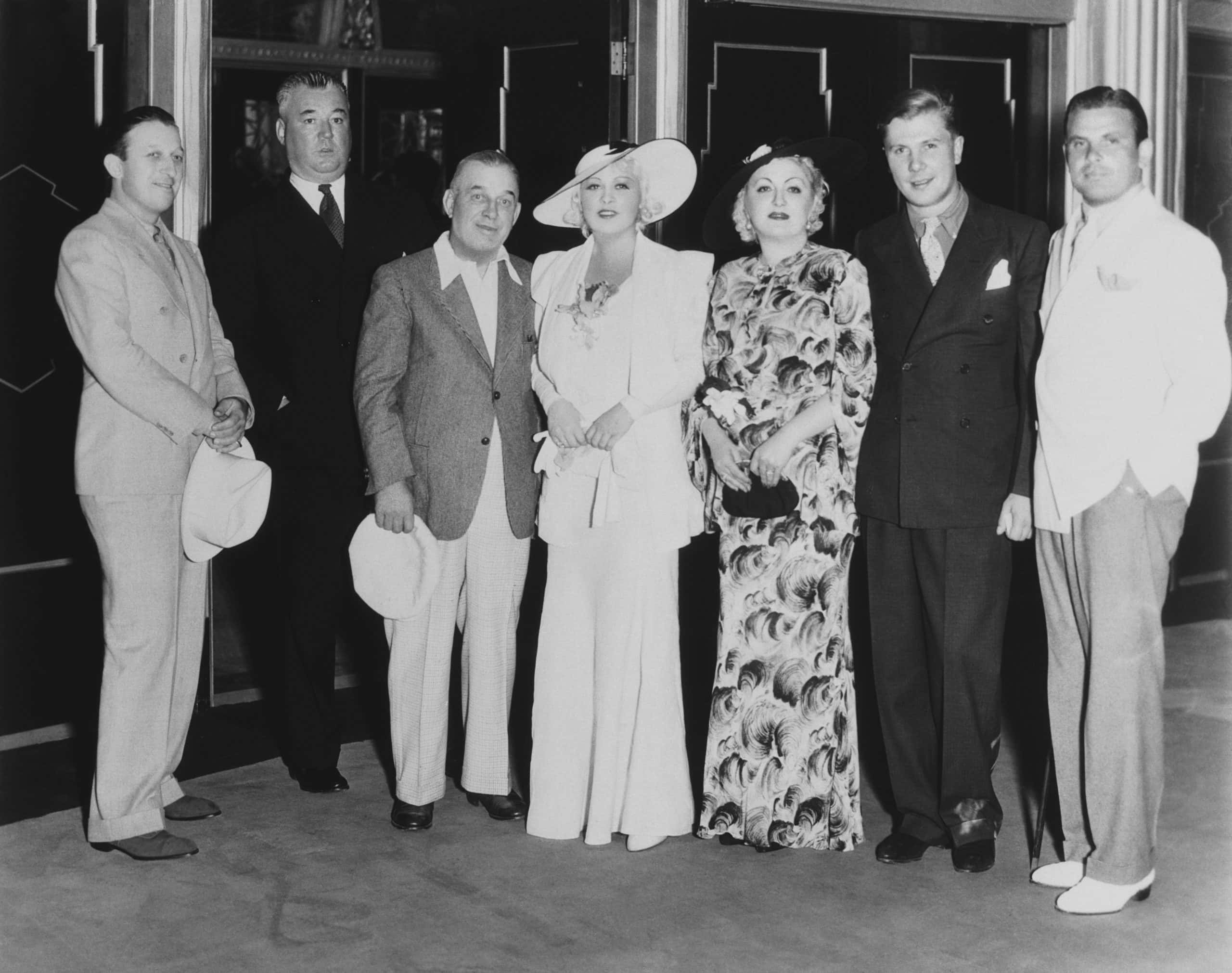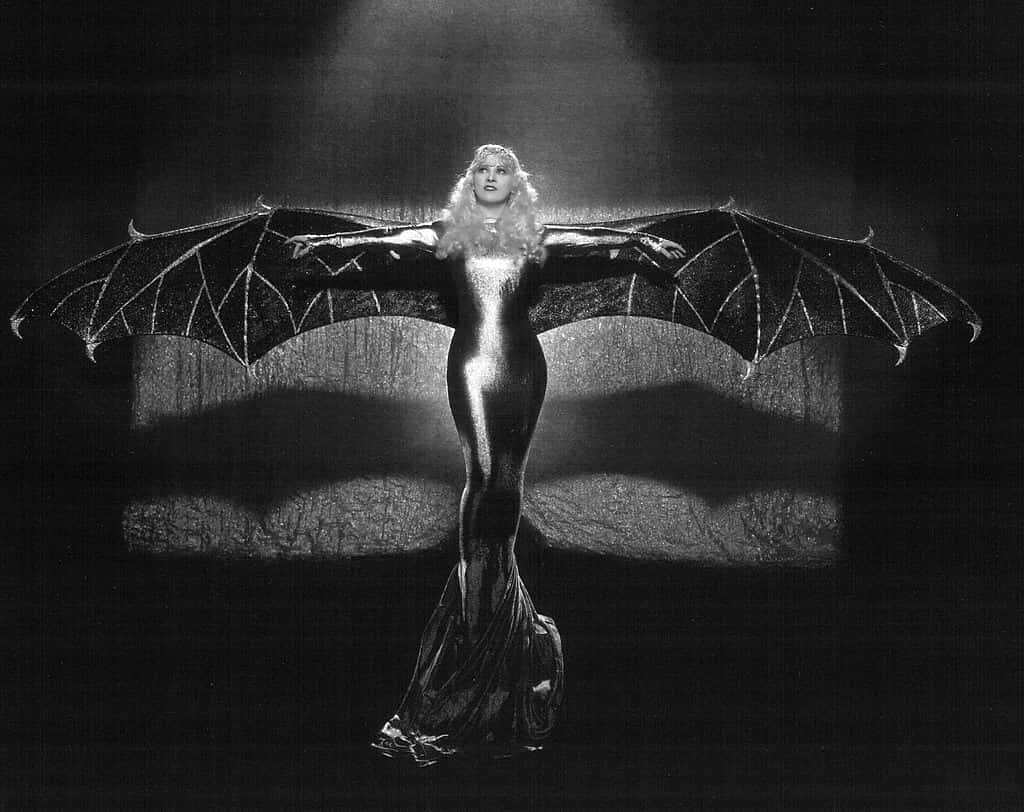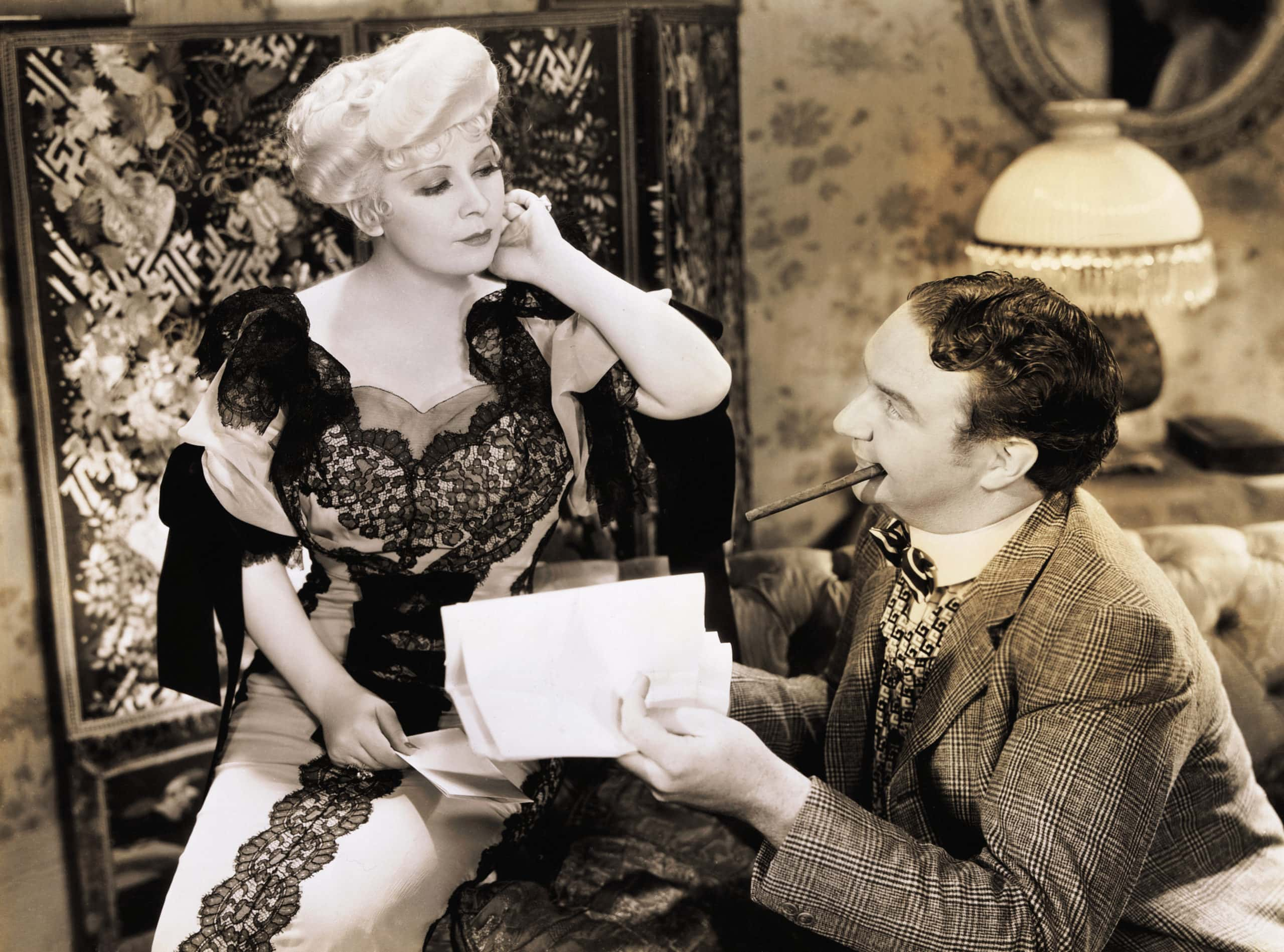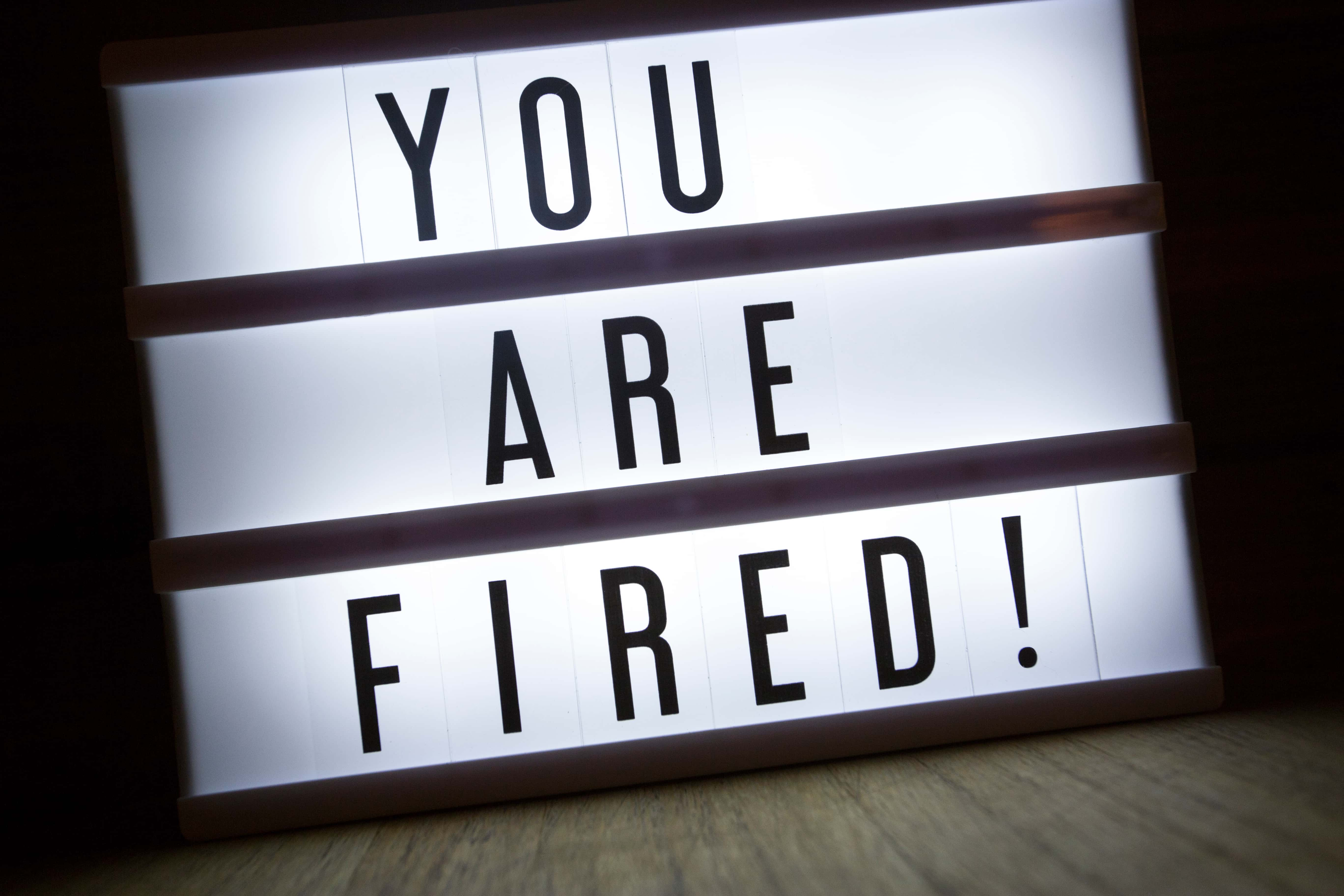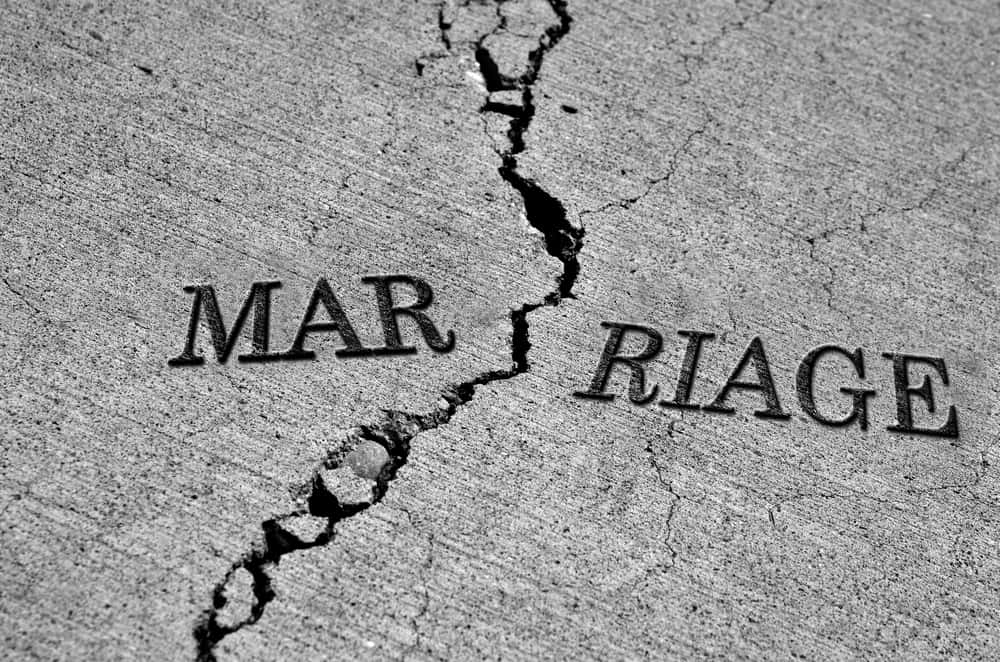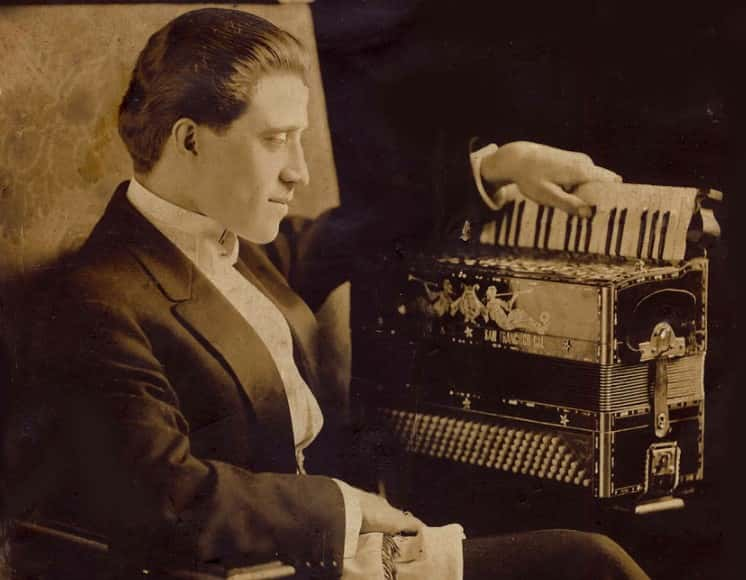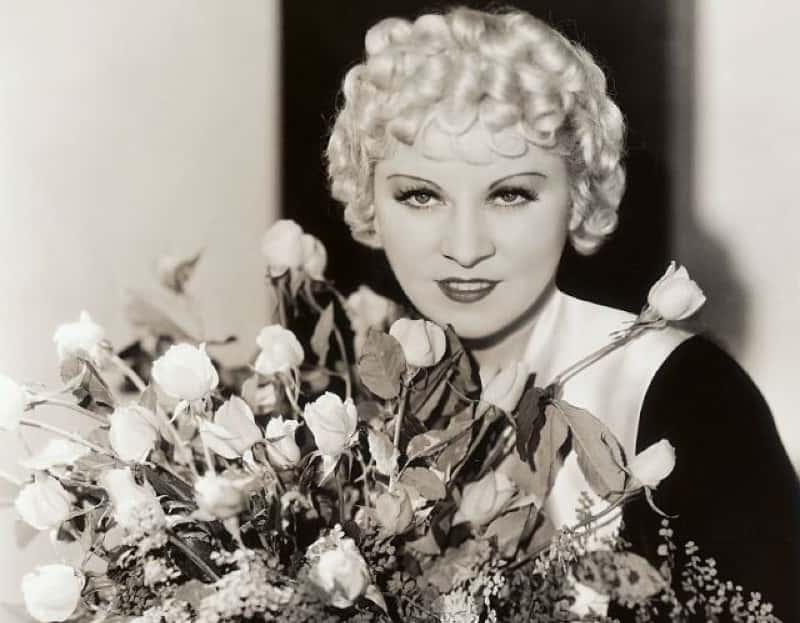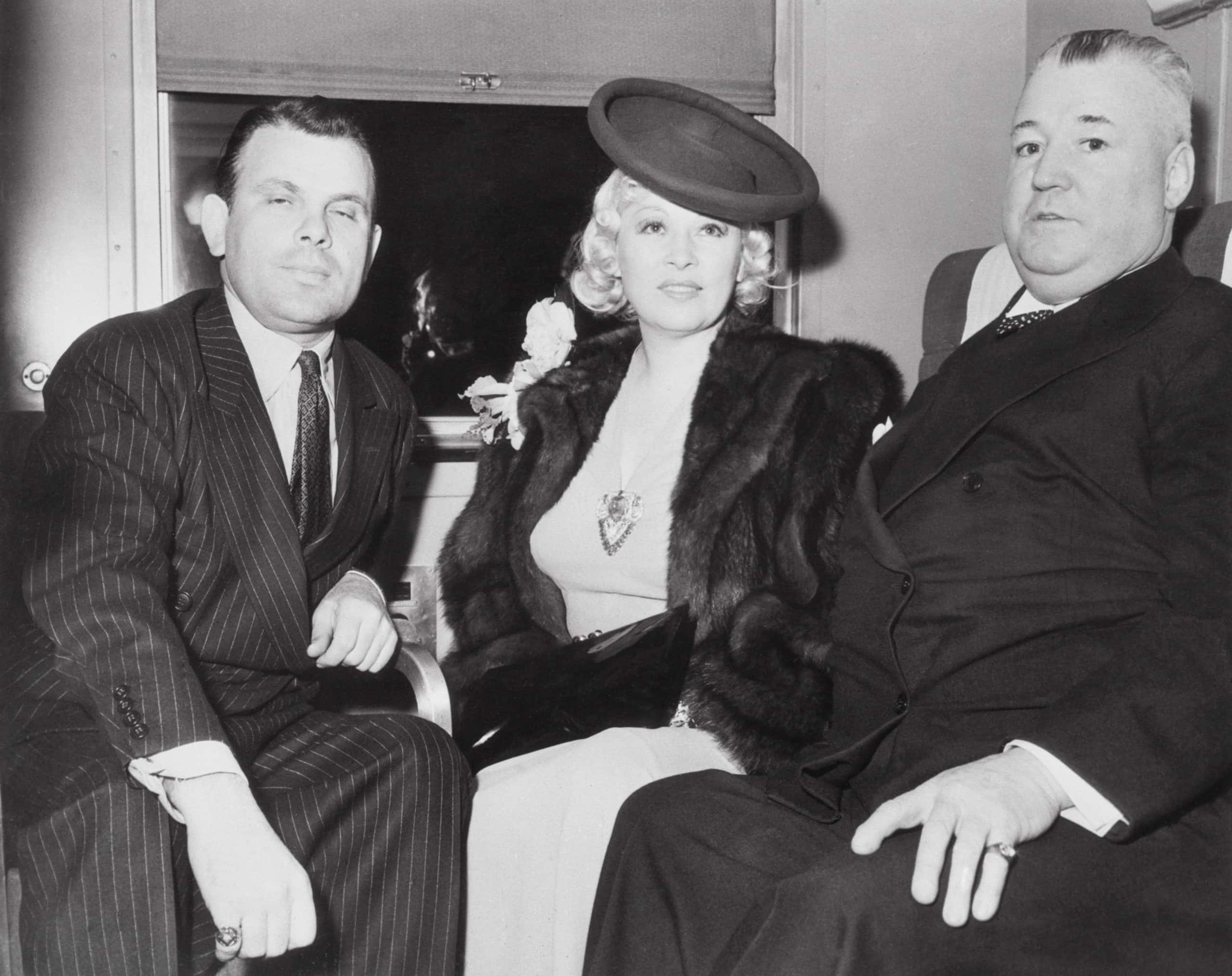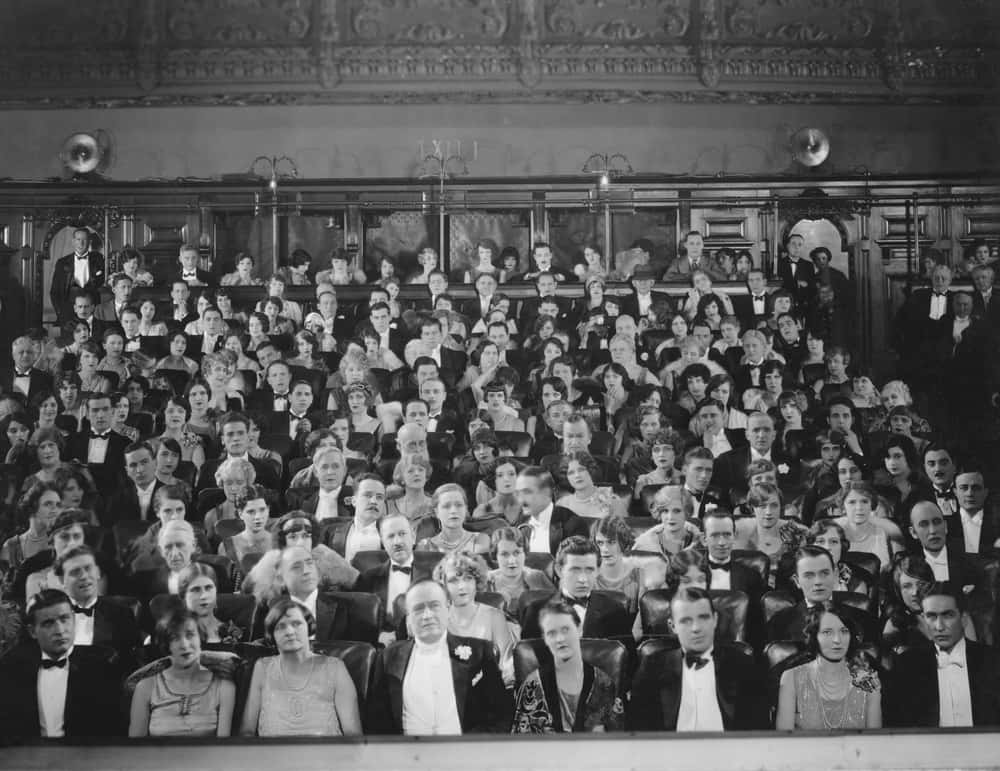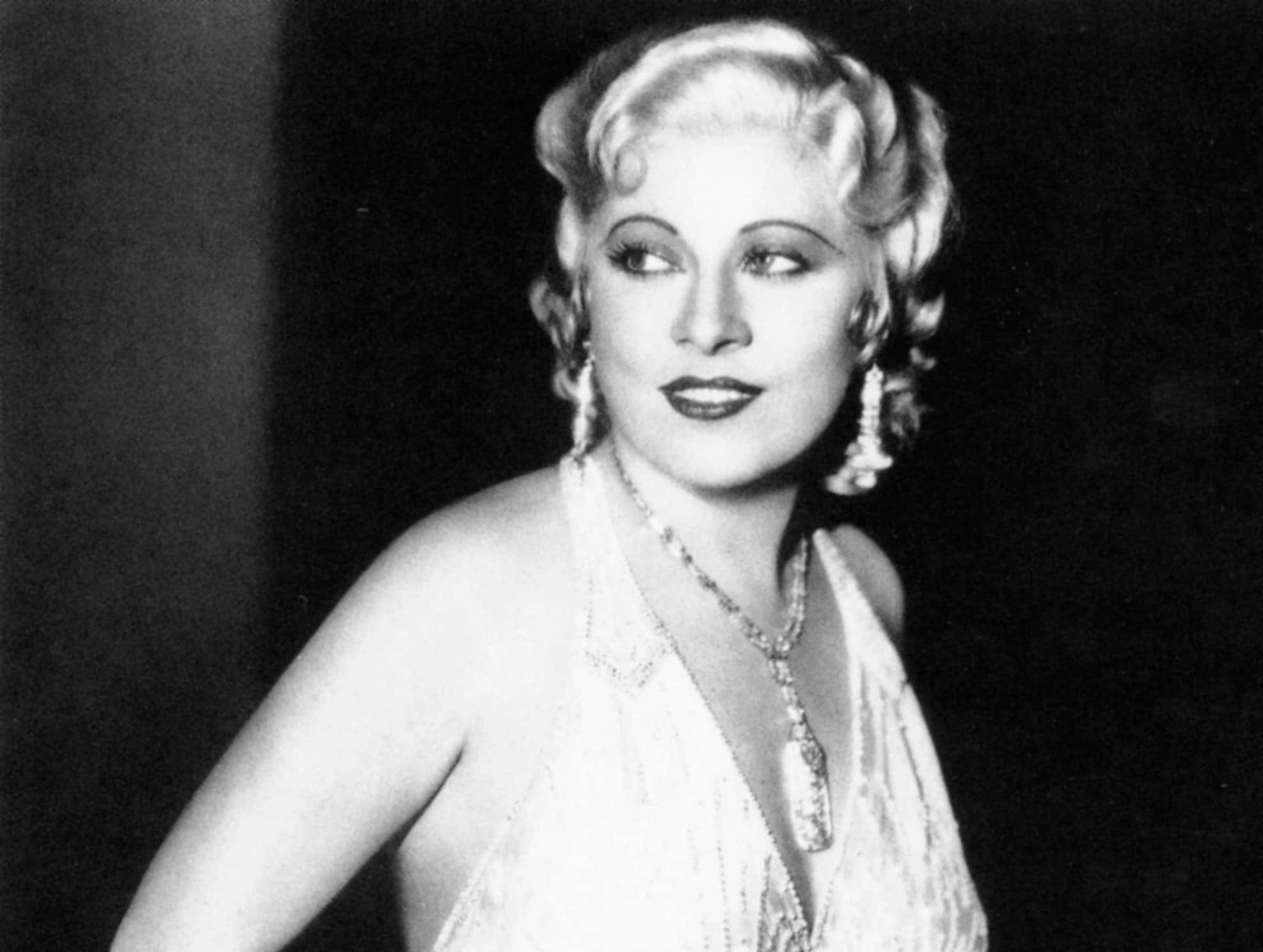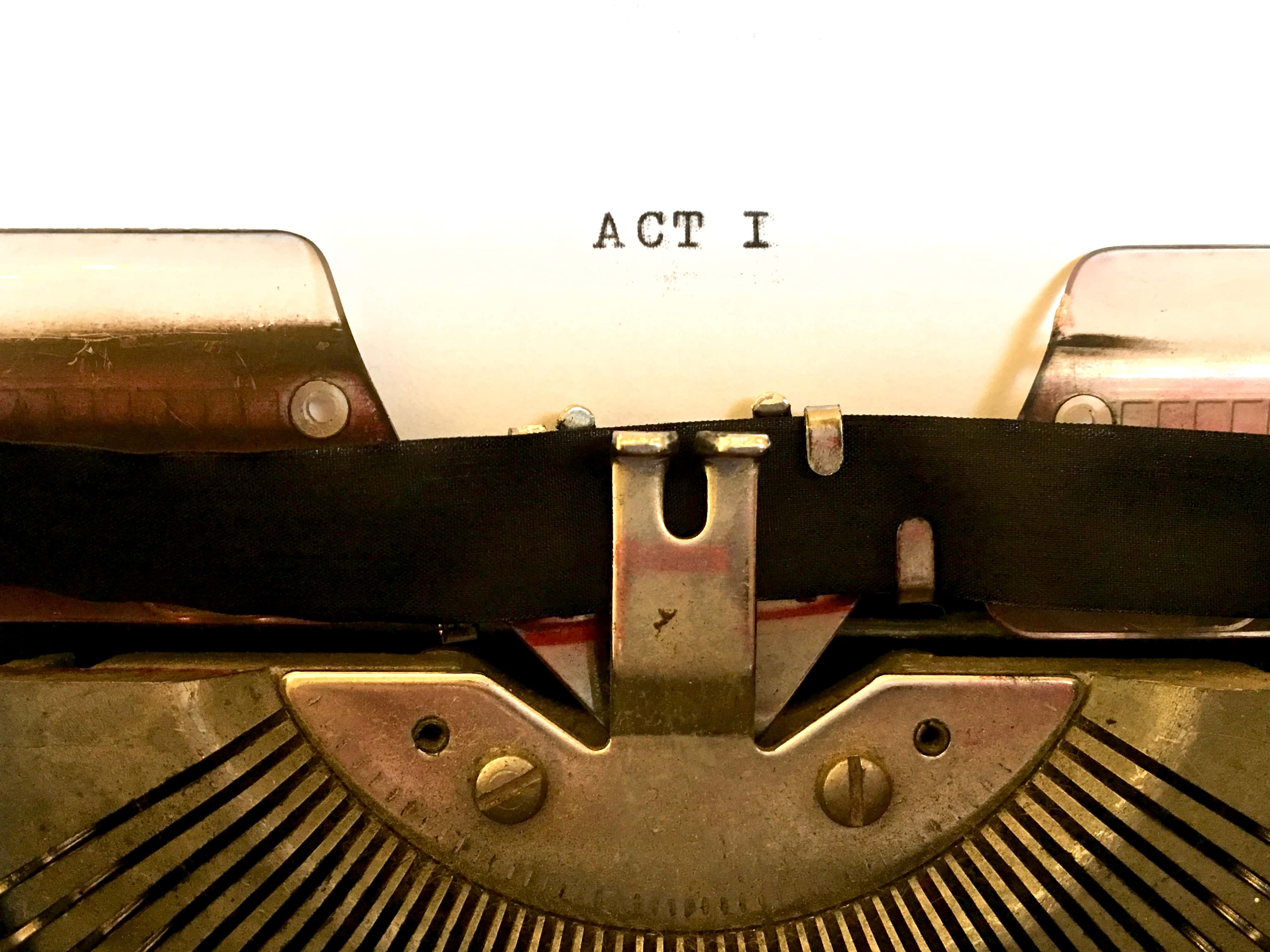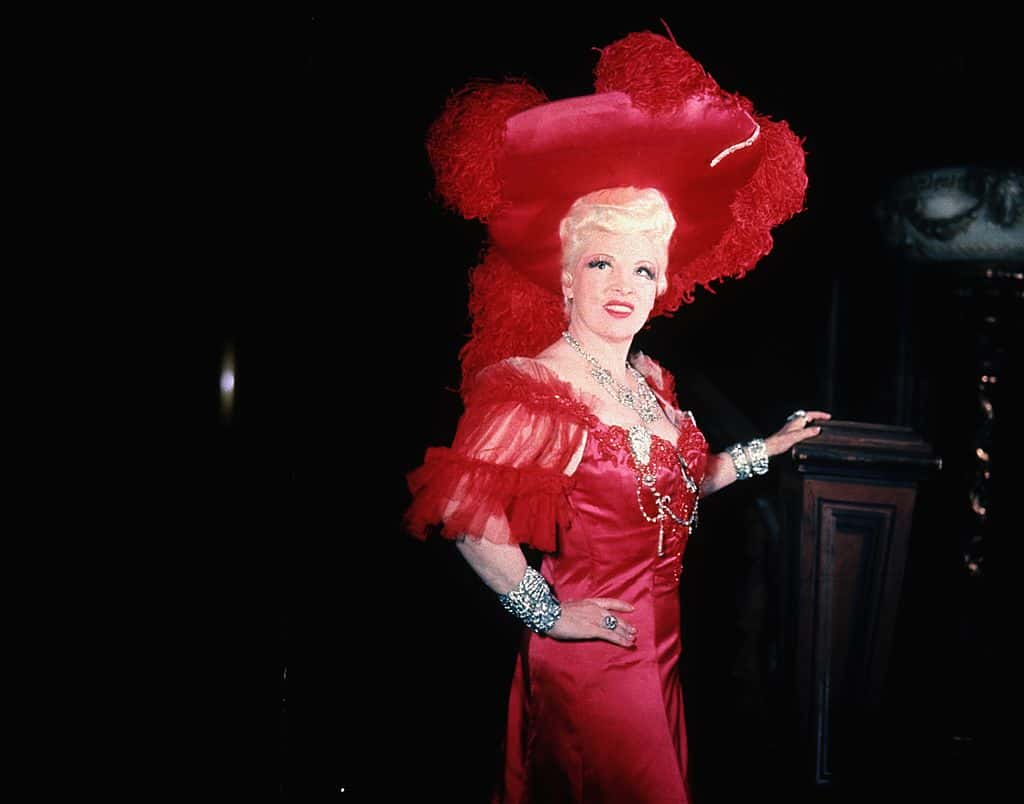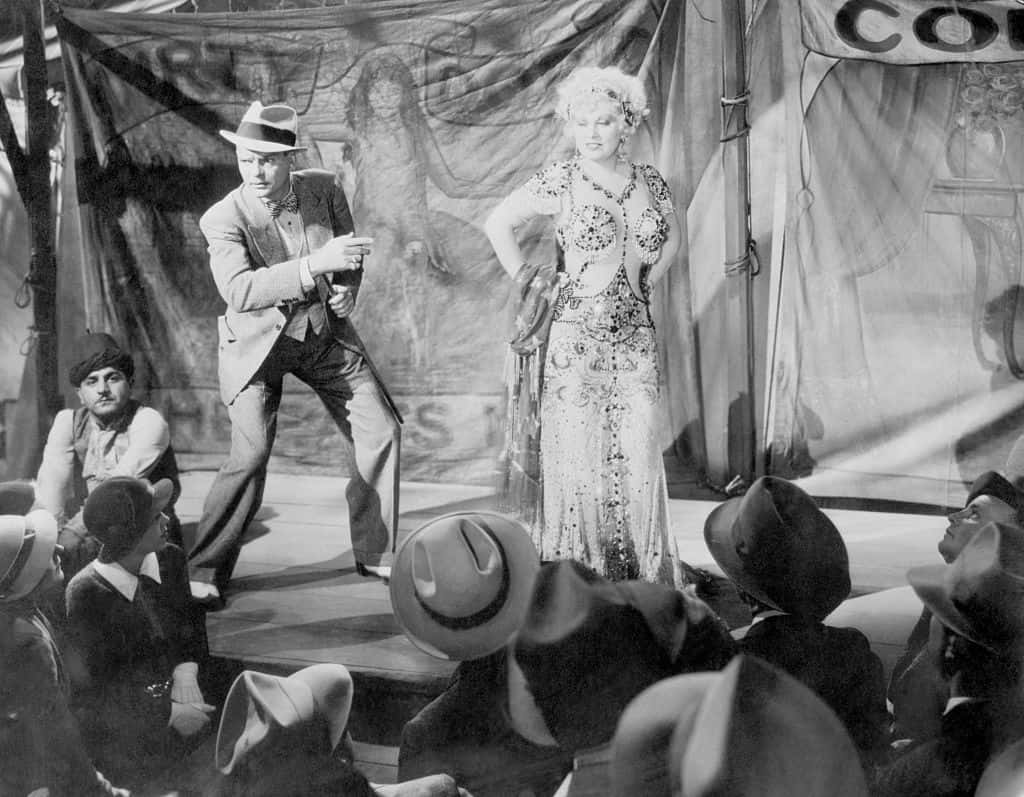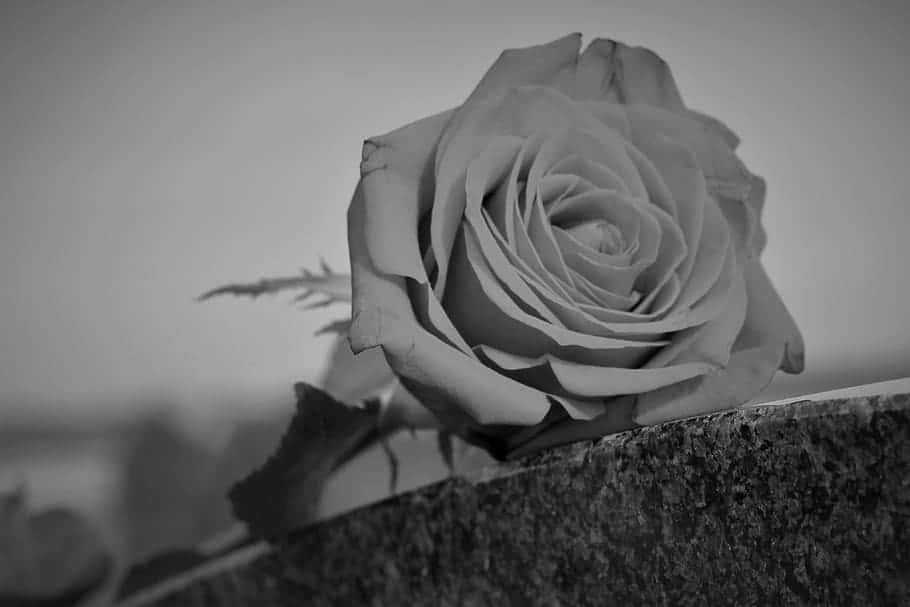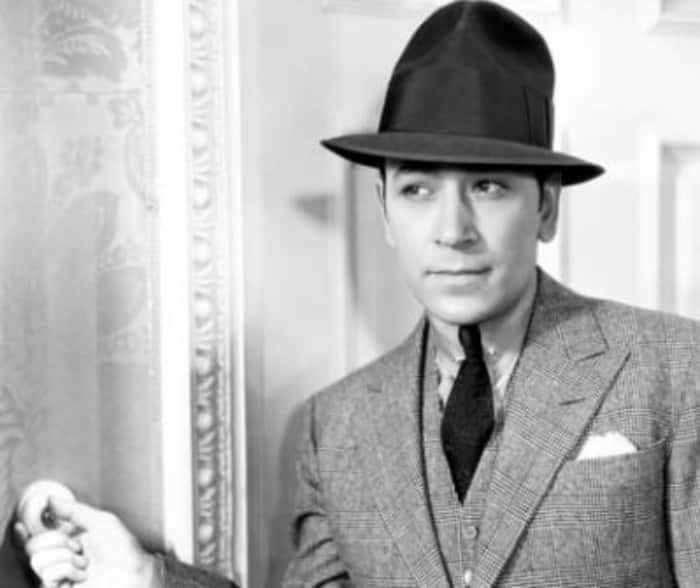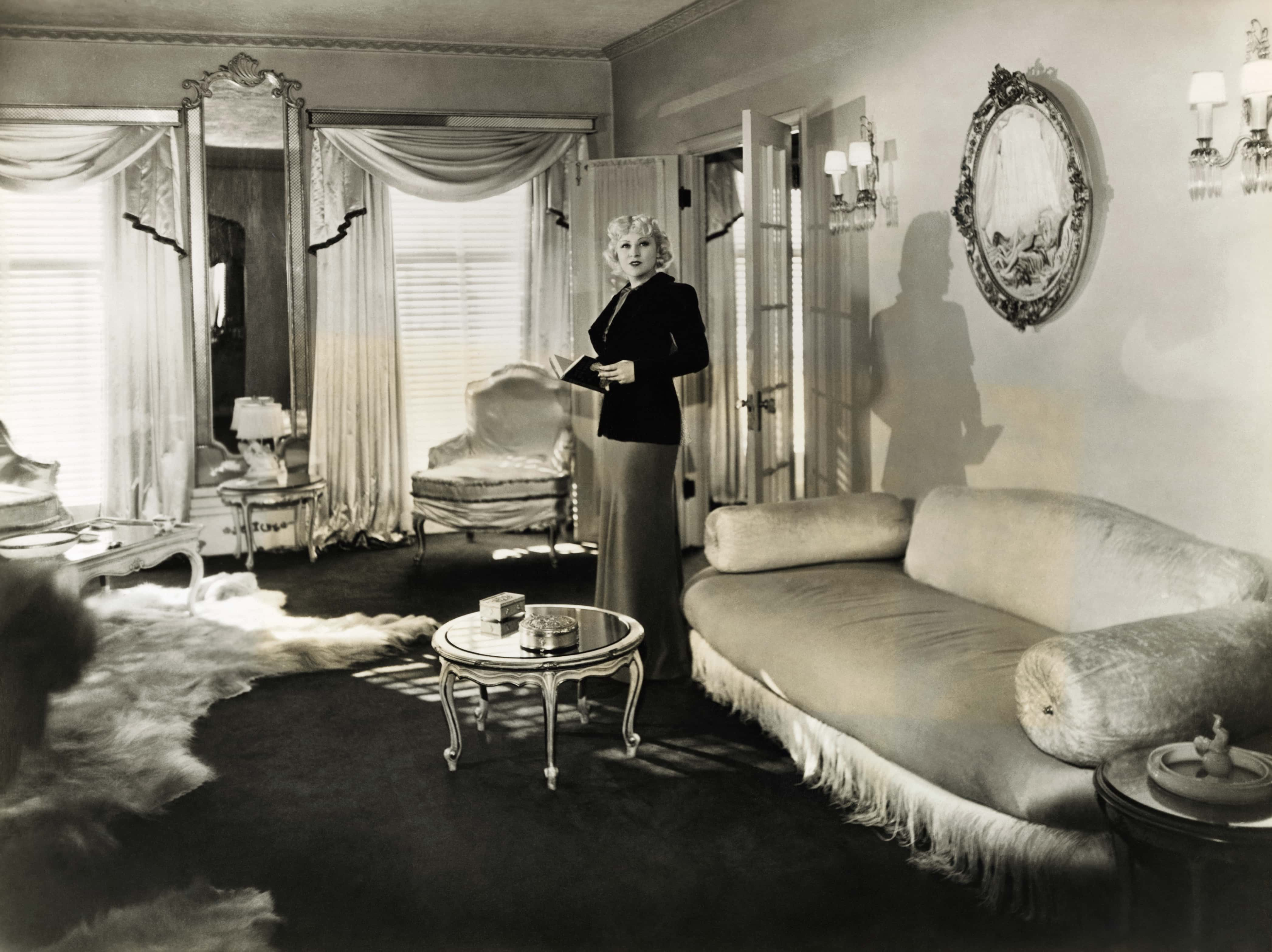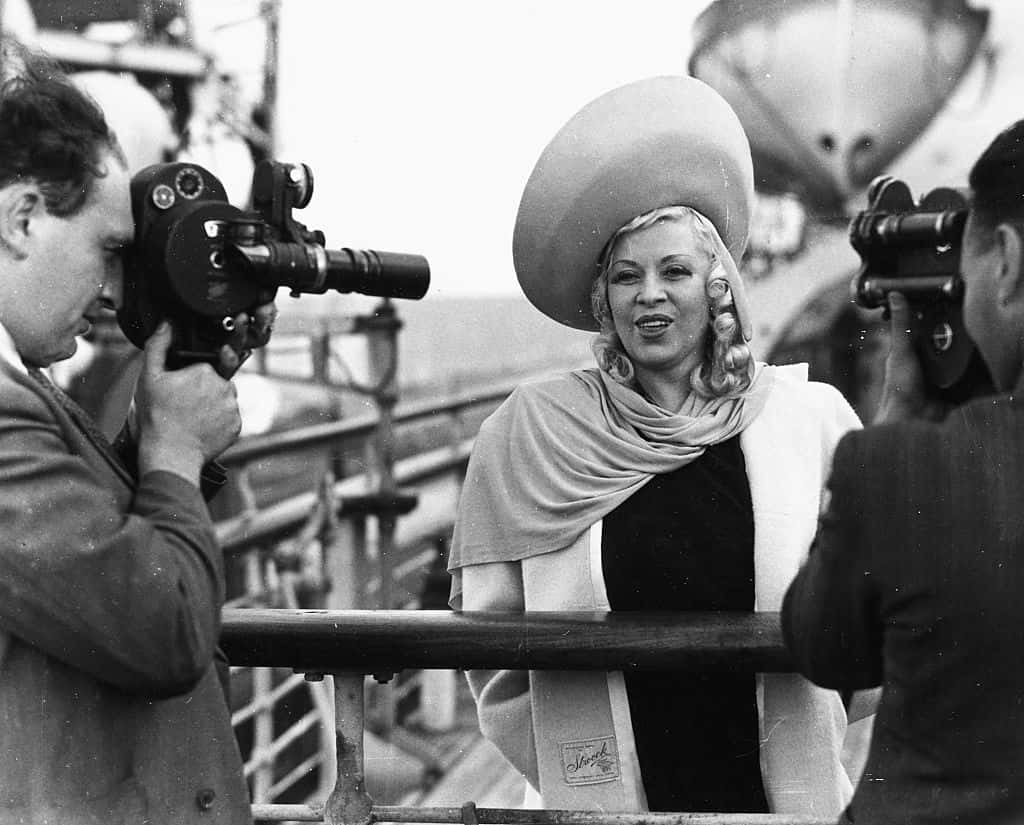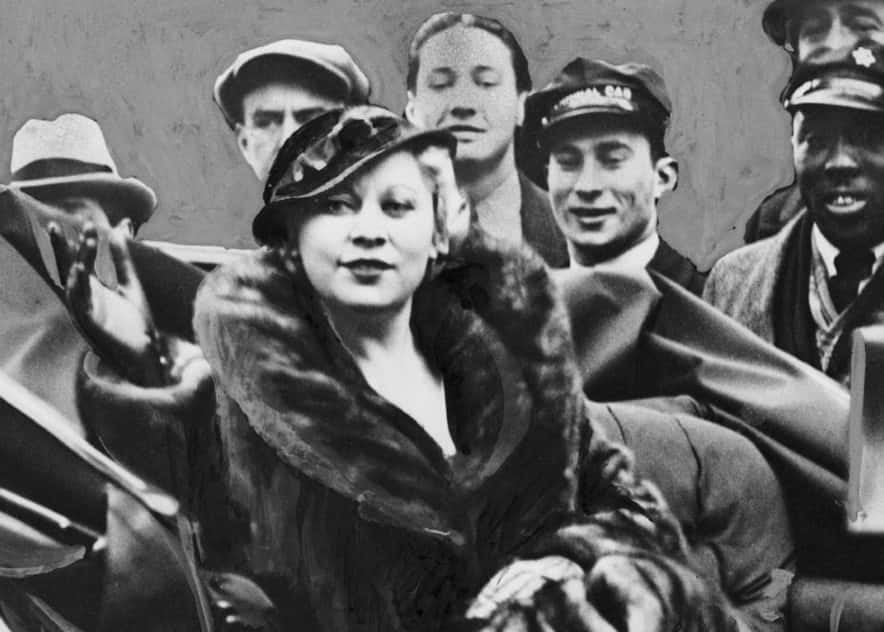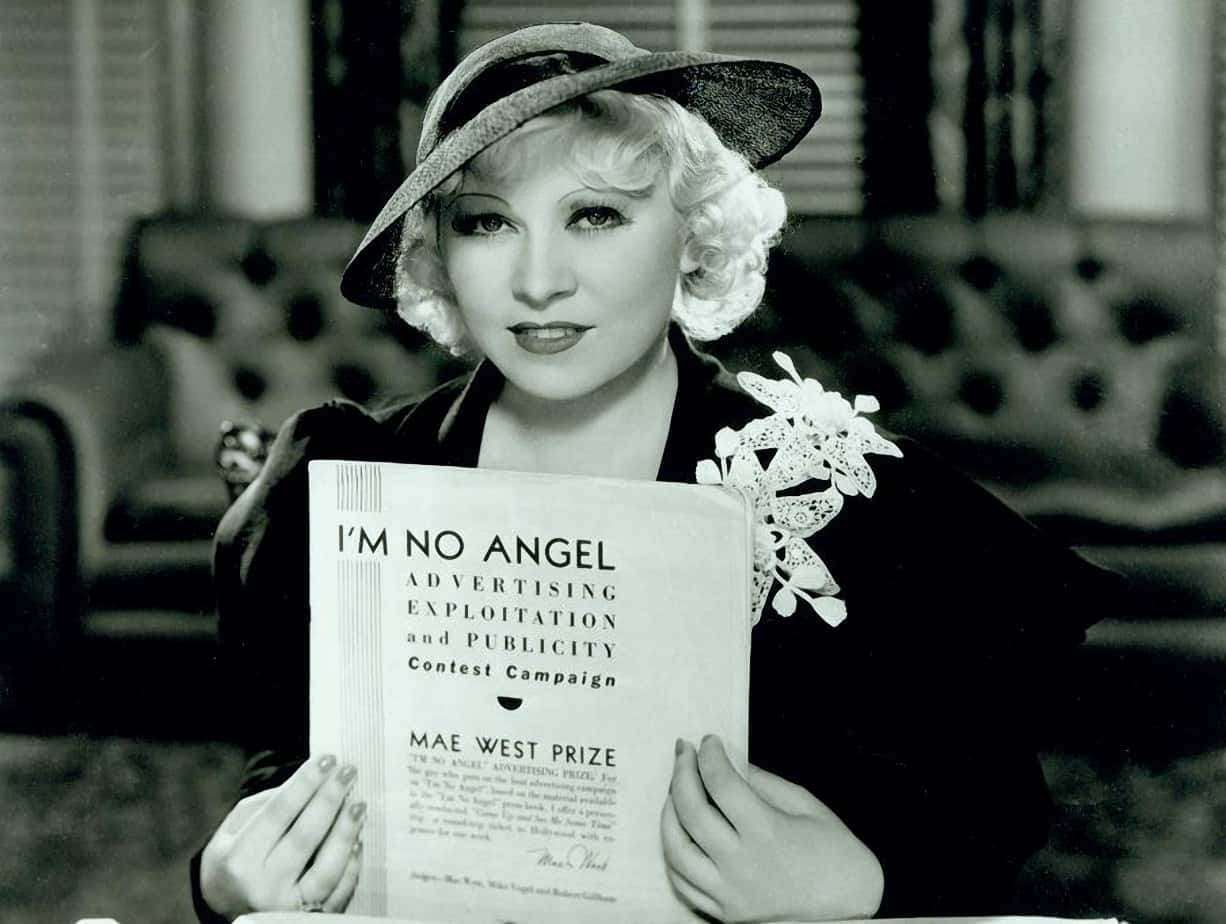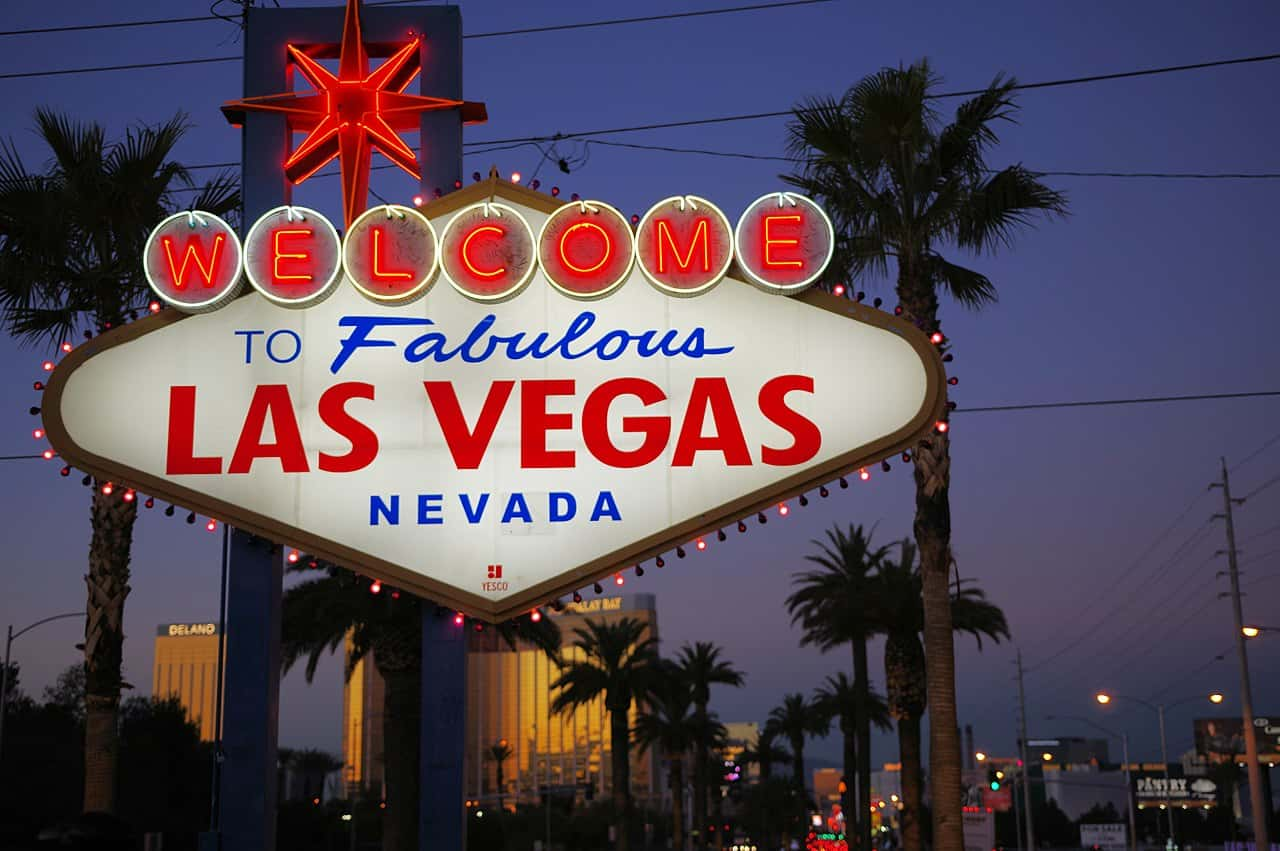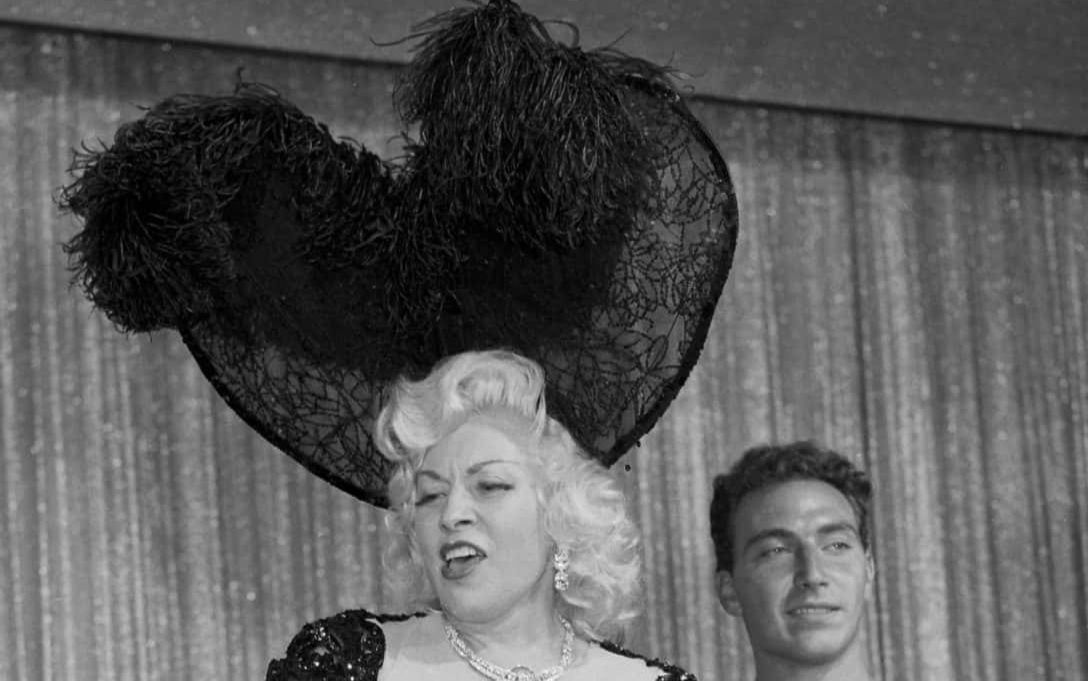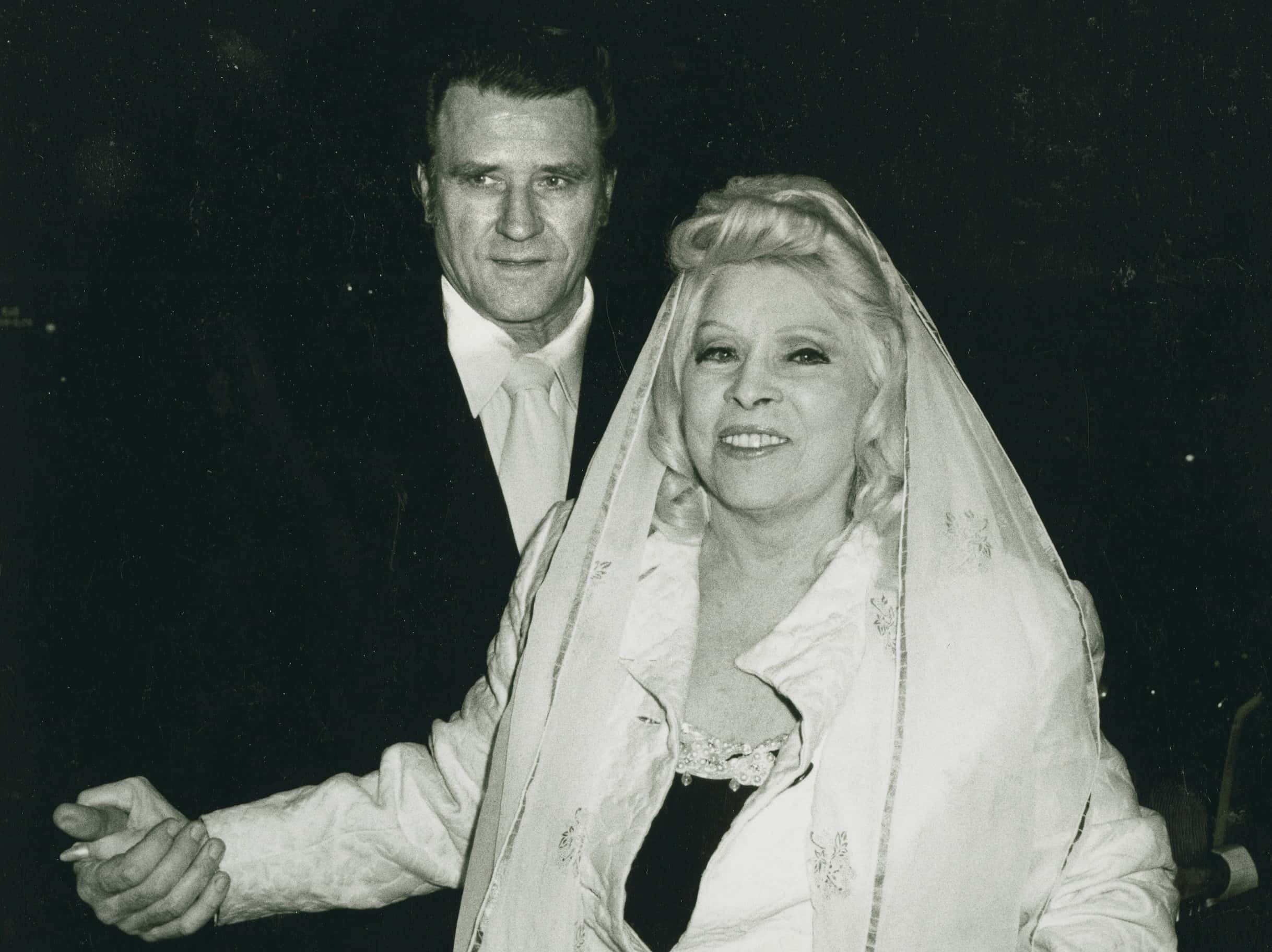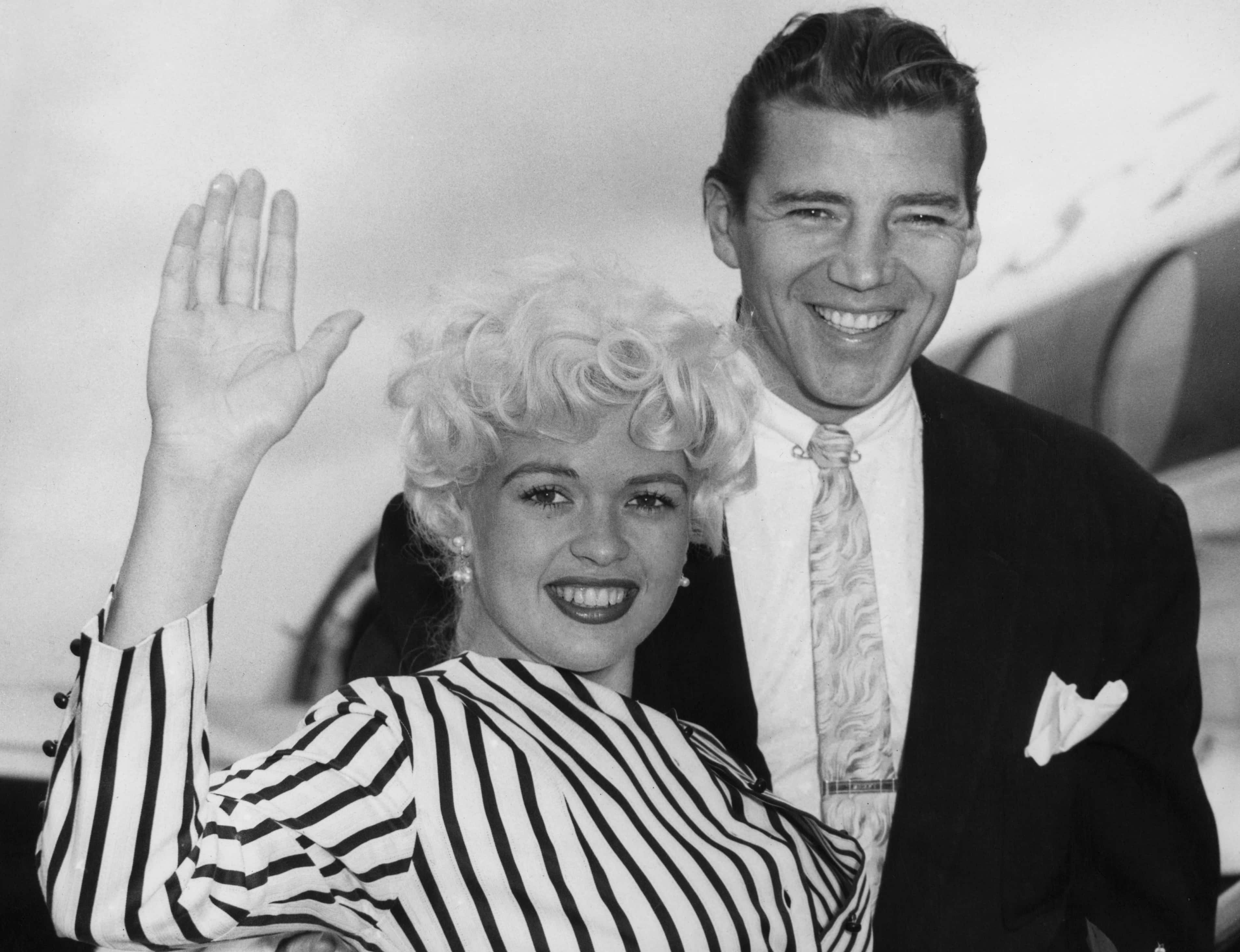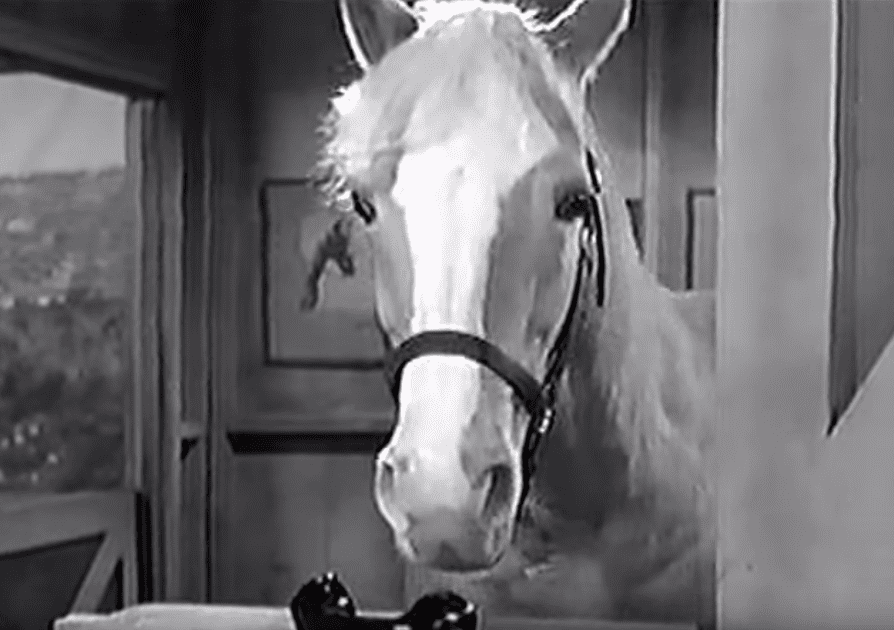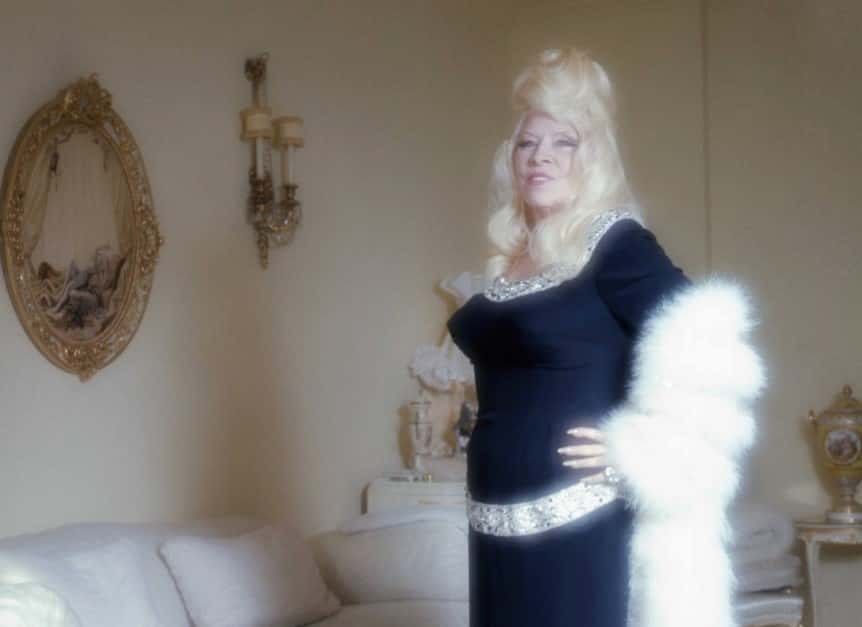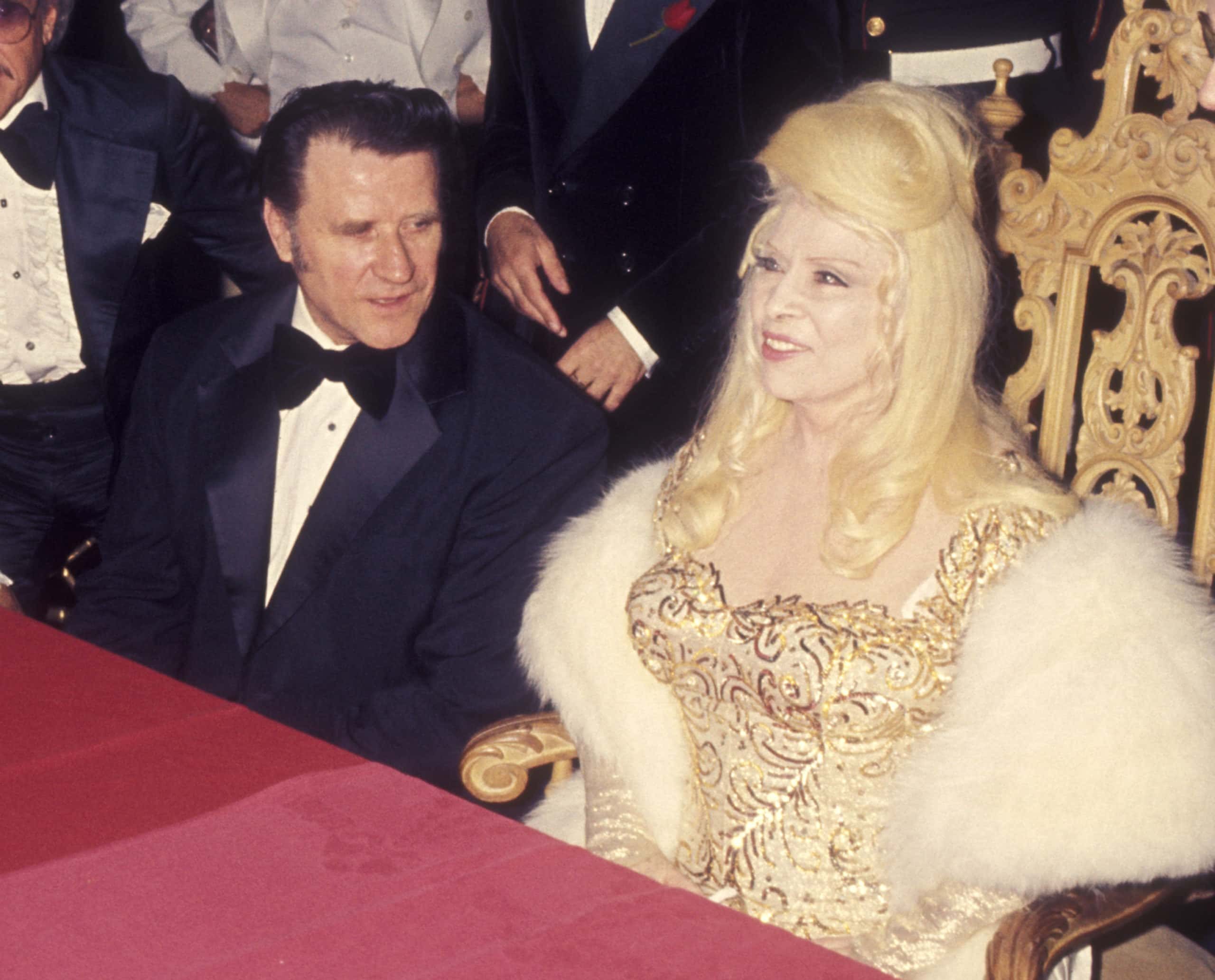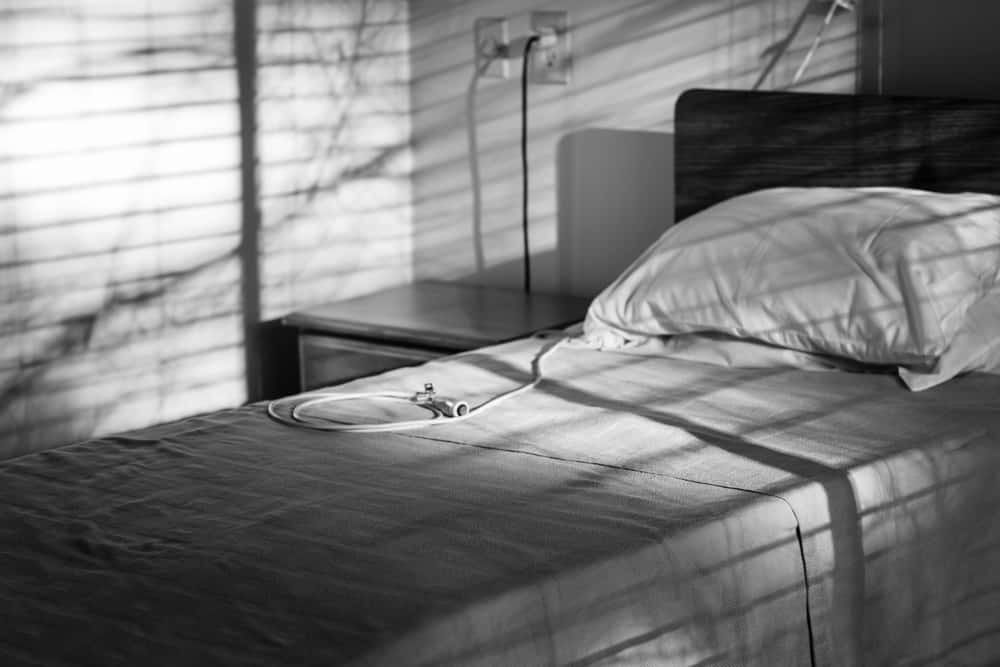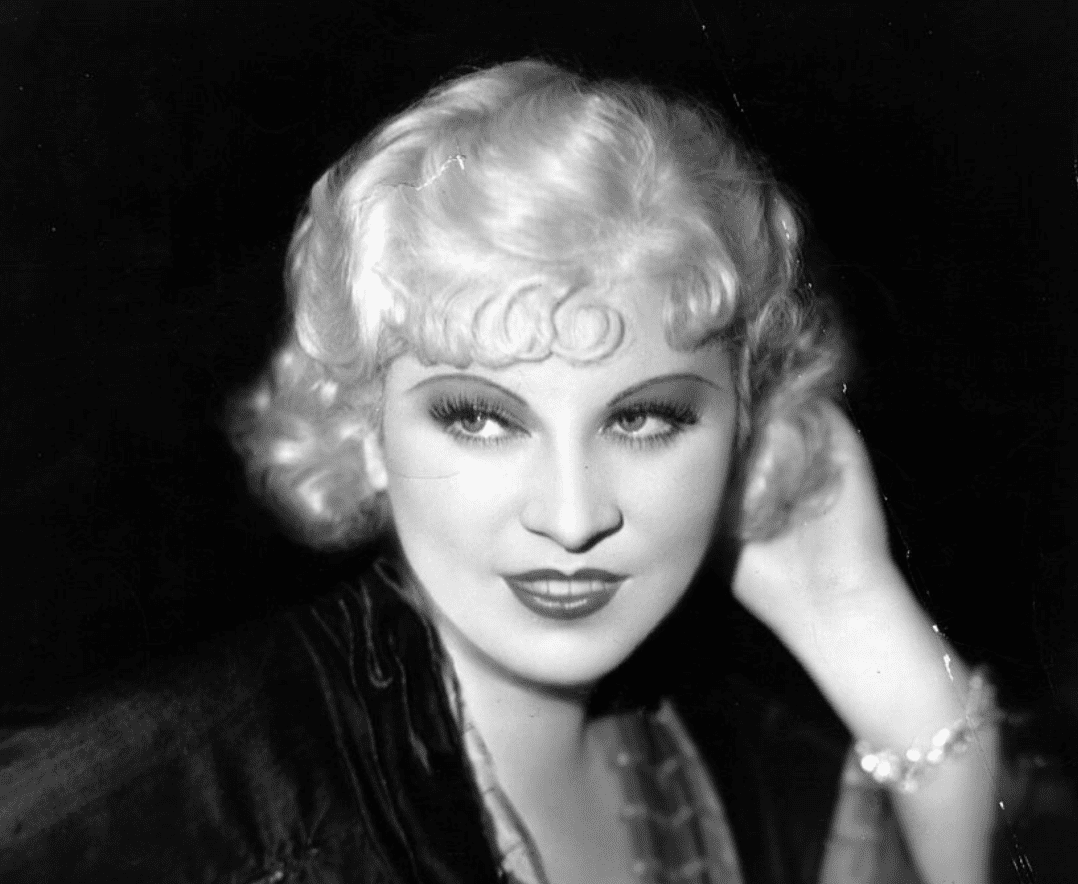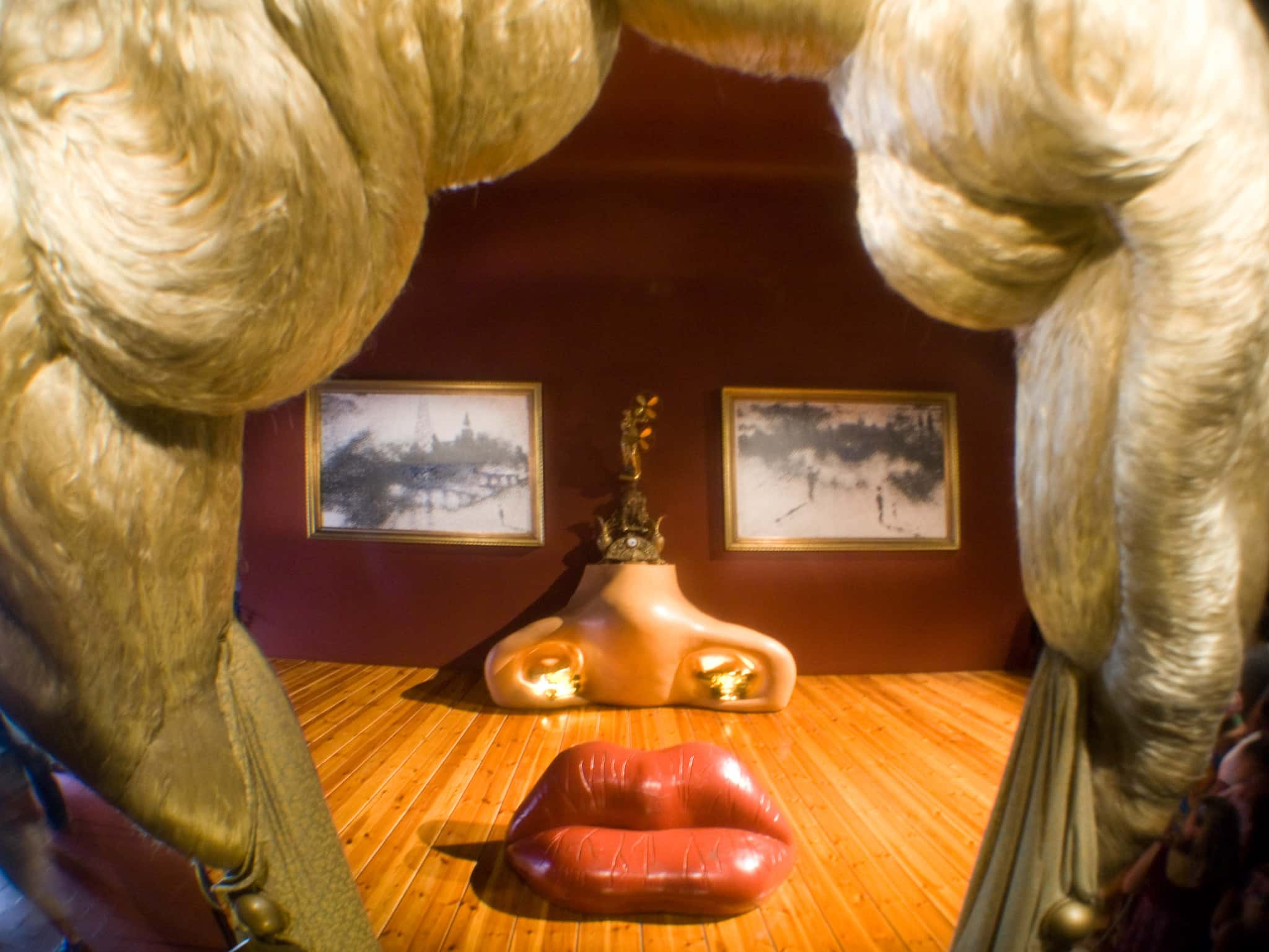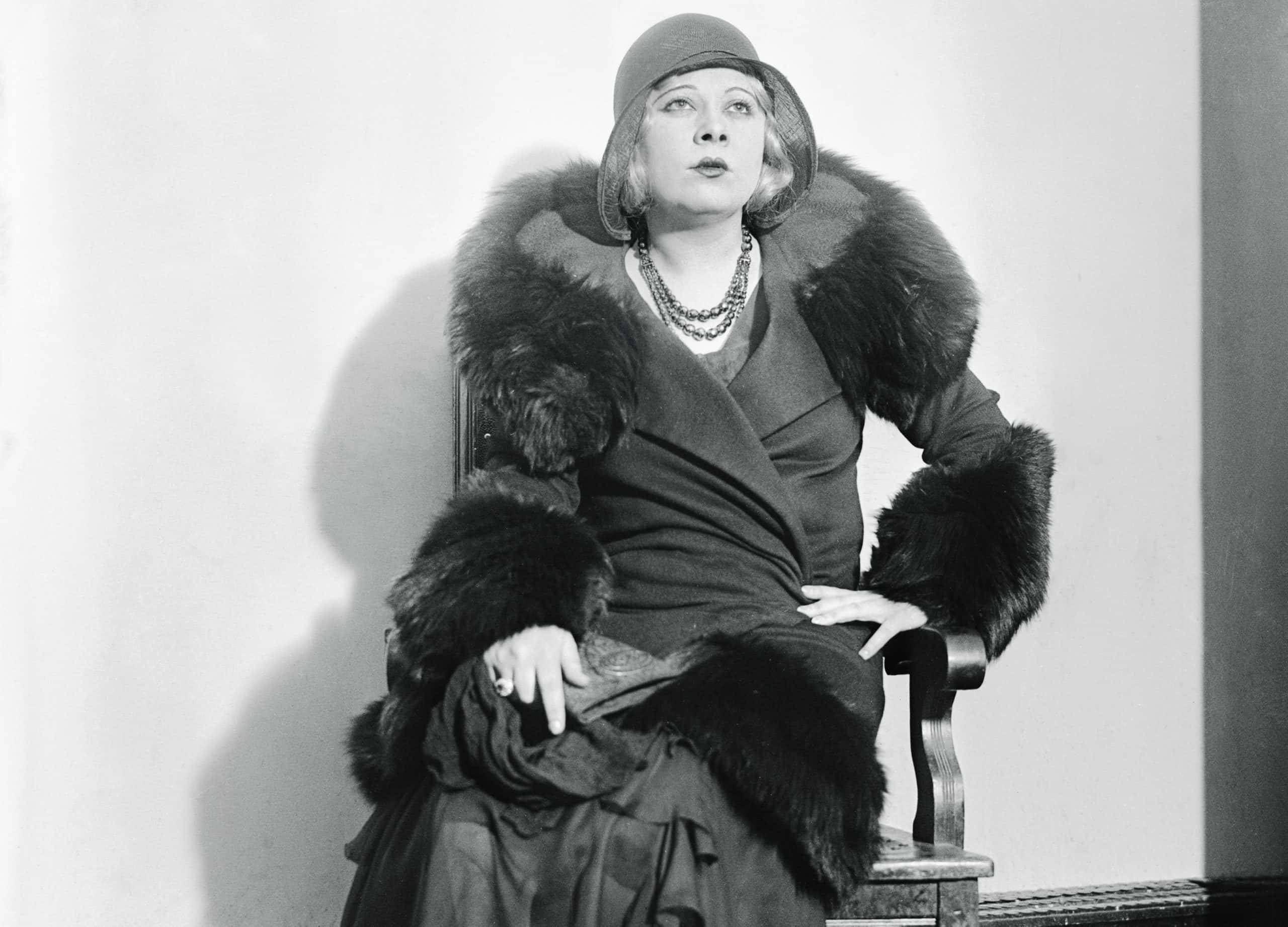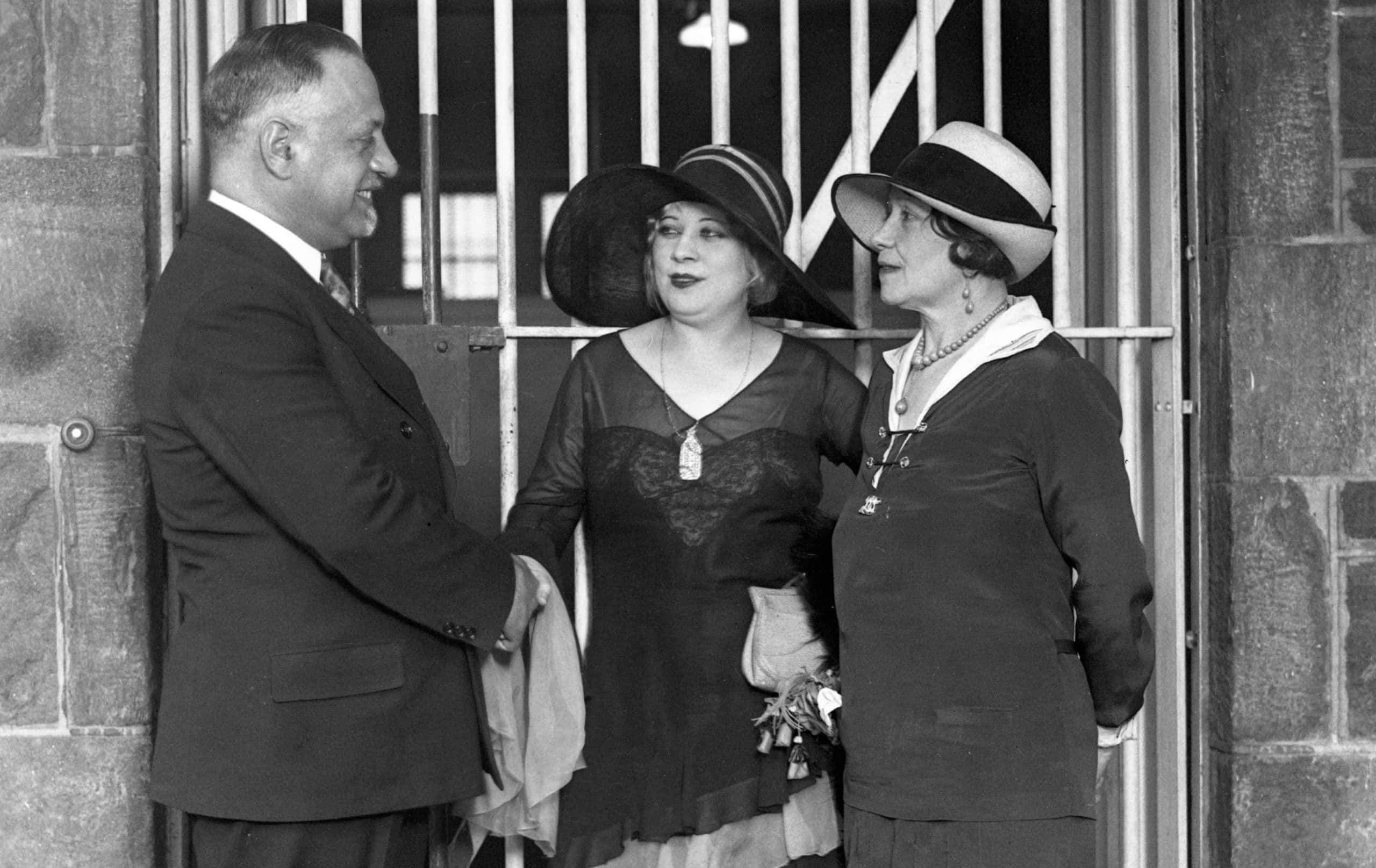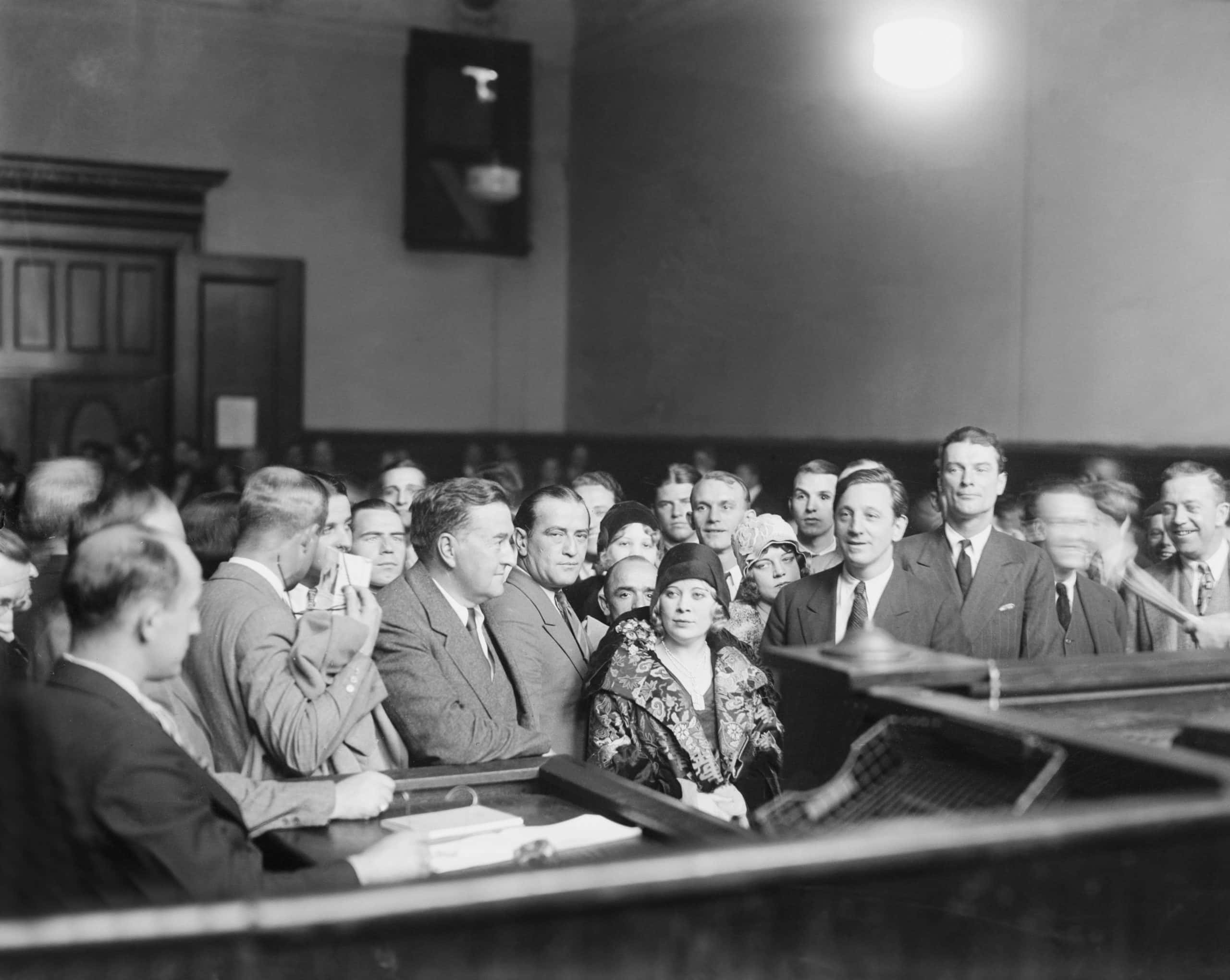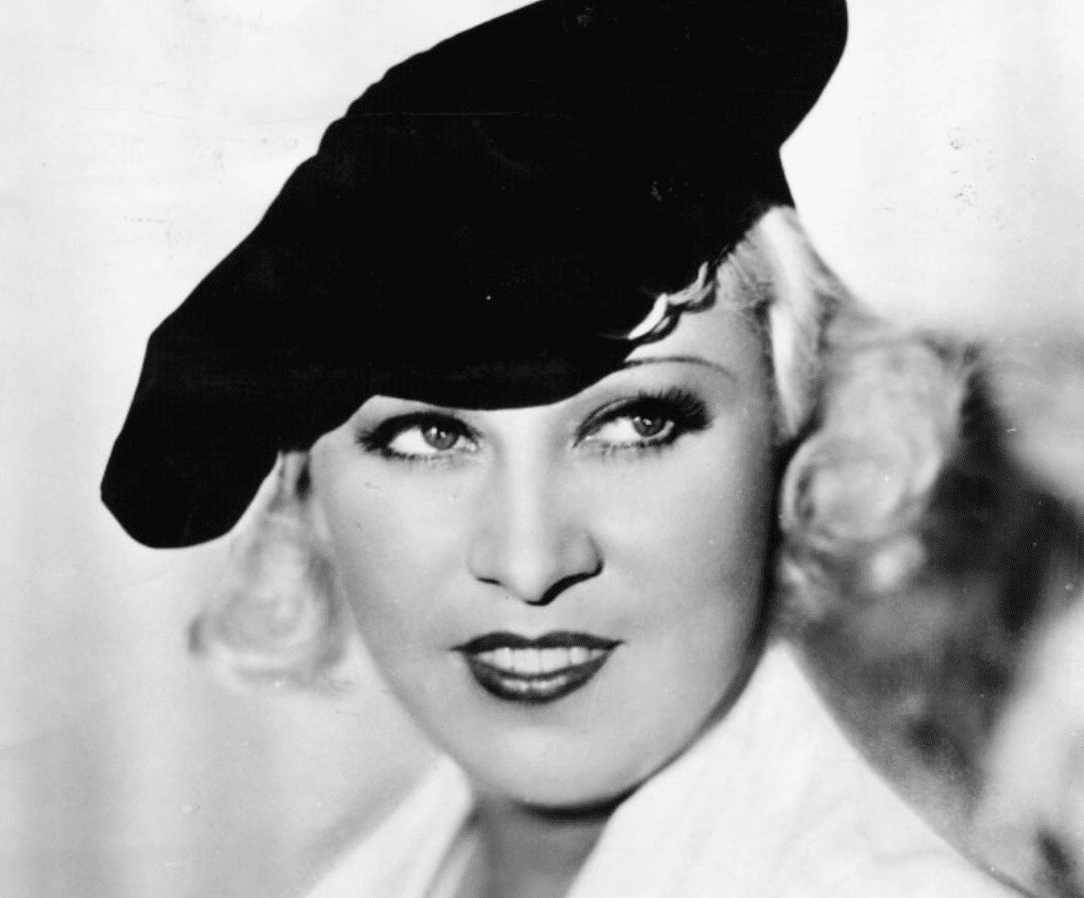Long before the likes of Charlize Theron, Michelle Pfeiffer, or even Marilyn Monroe, there was Mae West—actress and provocateur. Of course, there’s more than enough fascinating material with just those three descriptors, but there was a lot more to West than just her allure and bold behavior. West was one of the most controversial celebrities of her time—and her intriguing story is full of jaw-dropping twists and turns.
1. She Was Destined For Stardom
Mae West became one of the biggest stars in the world, but long before she first stepped on stage, she was just a humble young girl with a modest upbr—just kidding. It seems that, from the earliest possible moment, West craved fame. She started acting when she was just five years old, and diva behavior followed soon after.
West herself said that she’d refuse to leave the house unless she was wearing her fanciest dress and was addicted to her own appearance—but it wasn’t all ego, and she quickly began to back it up with hard work.
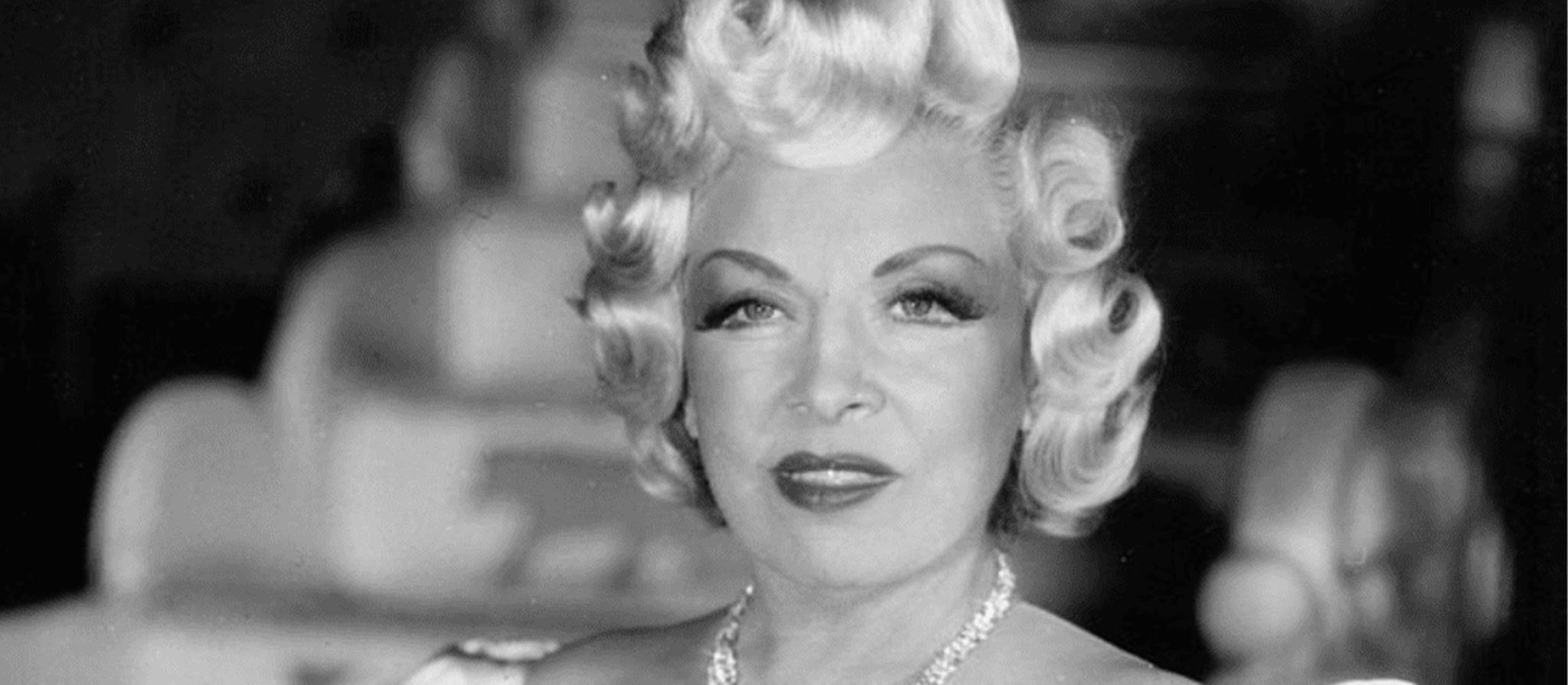
2. She Only Cared About One Thing
By the time she hit the third grade, West’s quest for fame already had her dropping out of school—not that she spent the time taking dancing or acting lessons either. A few weeks at a dance academy was enough for her to enter an amateur show herself as "Baby Mae". Amateur vaudeville nights turned into a stint at the Gotham Theater.
Considering she was a full-time paid performer before she even hit her teen years, it’s no surprise she grew up fast in other ways, too…
3. She Started Young
Mae West always made herself out to be a maneater—and just like her acting career, she started early. Way too early, in fact. In one account, West claimed that she was determined to lose her virginity before puberty, so she wouldn’t have to worry about getting pregnant. She said that she seduced her 21-year-old music teacher when she was 13, and told him that it was no big deal because she’d already done it before.
West’s nonchalant attitude about the birds and the bees became one of her defining characteristics—and any efforts to tamp it down ended in disaster.
4. She Never Worried About Her Reputation
Whenever West’s mother saw that she was spending too much time with any one boy, she’d encourage her daughter to move on—which often backfired. When West fell for bandleader Joseph Schenck, her mother told her to keep her options open…so she dated every other member of the band, one by one. West never kept a boyfriend for more than a week or two. She was way too preoccupied with her stage career.
Even the most passionate teen romance couldn’t distract her from her ambition—at first.
5. No One Measured Up
By the time she was 17, Mae West was established in the vaudeville circuit. And already, she was extremely hard to impress. But there was one way around that. When a young man named Frank Wallace began to consistently get more applause than her, she noticed. He proposed that they put on an act together, and she agreed.
Well, they were both getting more than they bargained for.
6. She Finally Fell
Considering her…history, Wallace was surprised when West kept him at arm’s length. She was not interested in mixing business with pleasure. They rehearsed, and eventually performed—but still, he’d occasionally proposition her when they finished their rehearsals, mostly out of habit. She’d reject him, and they’d go on with their lives…but late one night, West gave him the surprise of a lifetime. She jumped into his arms, and he responded ecstatically.
From then on, it was both business and pleasure—and unlike her previous relationships, she didn’t dump him as soon as they hit the one-month mark. But maybe she should have…
7. She Did It All In Secret
Mae West and Frank Wallace fell deeply in love on their ten-week tour. Or at least, Wallace did. They just fell into a new routine, similar to the one they’d had during rehearsals. He’d propose, she’d say no—and as an added bonus, she would occasionally fool around with another actor or an adoring male fan. Still, he stuck around, and his persistence paid off.
Finally, in 1911, West relented and told Wallace she’d marry him. They eloped in Milwaukee—but while Wallace hoped for a happy ending, he was in for something else entirely.
8. The Bloom Was Off The Rose
Two young lovers, eloping out of sheer passion for each other. Mae West’s wedding to Frank Wallace should’ve been a fairy tale—but it was more of a horror story. It appears that the very act of marriage snuffed out any romantic feeling she had for Wallace, and according to her, she got a separate hotel room on their very first night as man and wife. If this sounds bad, well…you should hear Wallace’s version of it all.
9. She Kept Him Under Lock And Key
According to Wallace, he did get a taste of happily-ever-after with Mae West—but it had the longevity of a mayfly. After Milwaukee, they went to St. Paul, and from there, Minneapolis. That’s when Wallace realized West wasn’t exactly ready to settle down as she’d promised. West would depart their room at midnight and lock him in, only returning after 3 AM.
He heard from fellow vaudevillians that she was going on dates with locals—at least five in the time they were in Minneapolis. Wallace confronted her—but it didn’t really go as planned.

History's most fascinating stories and darkest secrets, delivered to your inbox daily.
10. She Wanted Her Freedom
When West’s husband confronted her about her cheating, she’d simply laugh and tell him that she didn’t think she was doing anything wrong, and that it was all innocent fun. Wallace’s reaction was even more surprising. He was so obsessed with her that he didn’t want to rock the boat and lose her. On top of that, she was hiding a secret. West never told her family about the marriage—and she didn’t want to.
When they returned to New York, she told him that they both had to keep it a secret and live separately. Wallace likely thought the arrangement was temporary. He was so, so wrong.
11. She Turned Her Back On Him
They’d once mixed business and pleasure, but when it came to Wallace, West quickly withdrew from the "pleasure" part of the arrangement—and then gradually withdrew from the "business" part as well. West left Wallace high and dry and threw herself into her vaudeville career. As a solo artist, she solidified her look and act, taking large doses of inspiration from the best "female impersonators" of the era.
In fact, the reference was so heavy-handed that people whispered that Mae West herself must actually be a man under all the costumes and makeup. It wouldn’t be the last time that West sparked these kinds of salacious rumors, as we’ll see.
12. She Had Someone Riding Her Coattails
Mae West was making enough money to put together her own act, and buy her own costumes and songs to perform. Seeing her success, West’s mother begged her to include her sister Beverly in her act. They came up with a raucous, risqué show that set audiences aflame—but behind the scenes, things were ice cold.
13. She Didn’t Share Their Bad Habits
Despite her saucy behavior, men and vanity were Mae West’s only vices. She had no interest in smokes or drinking. Sadly, the same could not be said for Beverly. West’s younger sister got caught up in partying with the vaudeville crowd, and could barely lift her head the next morning when it came time to rehearse. It all sparked a resentment between the two sisters that would last far longer than their act did.
14. She Wouldn’t Tone It Down
Mae West made her name in vaudeville by showing her brash, bawdy side. Still, even as her popularity rose, she led a heartbreaking struggle for acceptance. Her fellow performers judged her for how provocative her act was, and some said that she should quit vaudeville and go into burlesque—a dire insult for a performer in her line of work.
Still, West had seen the trajectory of other racy vaudevillians who’d come before her, and she always believed that if she stuck to her guns, eventually it would pay off.
15. She Was A Renegade
Collaboration is key in vaudeville, but Mae West was a trailblazer ahead of her time—which meant there was a lack of willing writers and musicians for her to work with. Well, that was no problem for Mae. Despite the fact that she’d dropped out of school before she hit double digits, she got right down to business writing an act for herself, and enlisted a man named Harry Richman to play piano and deliver a few lines. She’d make him a star—but she wasn’t always easy to work with.
16. She Loved ‘Em And Left ‘Em
Other vaudeville performers had warned Richman that once he gave into West’s advances, she’d fire him. So, despite their mutual attraction, he tried to keep things professional—and the performance was a hit. At first. As her frustration with him grew, she showed her animosity on stage. Finally, Richman gave in…and, like clockwork, she let him go the very next day.
Either way, it didn’t really matter who was on stage with her—after all, West always stole the show.
17. She Tried To Get Rid Of Him
Even though she’d kicked him to the curb, West’s estranged husband Frank Wallace came crawling back for more. She begged him for an annulment, and when that didn’t work, she tried the opposite strategy. West asked him to buy her a home, as was her due as a wife. However, when she went to the bank with him, her reaction was unforgettable.
Seeing that he had mere pennies in savings, she told him, "You need this more than I do". It was over for real, and Wallace knew it—yet neither sought to legally end the marriage. As we’ll see, it would be a decision that came back to haunt them.
18. She Had A Secret Lover
Mae West, as a self-professed floozy, very clearly took a cavalier approach to romance—but she later admitted that one Italian lover made a large enough dent in her armor that she finally experienced her first heartbreak. In her memoir, she called him Mr. D, but showbiz historians have put together that this was most likely vaudeville performer Guido Deiro.
Even though she fell hard, she found it impossible to quit her promiscuous lifestyle cold turkey—and that wasn’t their only problem.
19. Their Relationship Was Tempestuous
Deiro became increasingly jealous as the days passed, and she began to fear he’d attack one of her many suitors. On top of that, he asked her to marry him—but as we all know, she couldn’t, as she was still technically married to Frank Wallace. And, well, he had a dark secret of his own. Deiro was also married, and had once had a warrant out for him for abandoning his wife.
West couldn’t say no to him, despite her claims that she never got involved with married men—which is likely why she didn’t use his real name when writing about him.
20. She Was In Mortal Danger
Their mutual marital situations couldn’t stop their passionate affair—but a sad tragedy could. According to documentarians, despite all the precautions West regularly took, she became pregnant with Deiro’s child. West knew that she was too self-involved for a husband, let alone a child, and she made the decision to undergo an abortion. It was the right choice—but one that she paid for dearly.
Doctors botched the procedure, and it not only cost West her fertility, but also nearly killed her. Upon hearing about what happened, a heartbroken Deiro finally ended their relationship. West swallowed her own heartbreak—and, of course, she didn’t stay single for long.
21. She Moved On Quickly
Mae West’s dalliances with fellow vaudeville performers hadn’t exactly ended well—but for a woman who was so career-focused, it was hard for her to connect with someone who didn’t share her passion. Enter James Timony, a man nine years older than her. He may not have been in show biz when she met him. Soon enough, he’d been in the Mae West business.
Despite being a successful lawyer, when Timony became involved with West, he basically dropped everything to devote his whole life to managing her career. Normally, this kind of proximity would send West running for the hills—but not this time.
22. He Was Her #1 Fan
Timony didn’t just support West’s career out of a sense of obligation. No, he was starstruck, and believed in her in a way that no one else had—except herself, of course. Timony got straight to work on her behalf, demanding a secret divorce from Wallace…who promptly had a full breakdown. Timony's unerring support was just what she needed—and considering the trouble she got into next, his judicial expertise couldn’t have hurt, either.
23. She Knew Just What To Do Next
One day, while driving by the waterfront, Mae West was struck by the sight of two sailors procuring the services of a woman—and it inspired a scandalous idea that would change the course of her life. West began writing a play under her pen name, Jane Mast, about the adventures of a hooker (with a heart of gold, of course) named Margy. She enlisted the help of a director, who seemed just as interested in her appeal as her words.
In fact, all of his exclamations about her more seductive qualities led her to finally pick a title for the play. She decided to call it Sex.
24. People Clamored To See Her
Mae West had appeared on Broadway before, but this was her first time starring in a production. Her confidence carried her, but so did word-of-mouth. While a pre-Broadway run in Connecticut had gotten off to a rough start, by the second night, word had spread and sailors had lined up around the block to catch the show.
Despite negative reviews once the play hit Broadway, the same thing happened, as raucous audiences filled the aisles to see the most controversial show of the year—and then, the backlash began.
25. People Turned On Her
It all began behind the scenes, with another playwright suing West and her associates for half a million dollars. West shot back at him—because of course she did. West said she’d paid the man a few bucks to write a play based on her idea, but that it had been so tawdry and obscene that she’d sacked him. Some of the show’s financiers tried to complain about the books, too.
Then, the newspapers upped the ante on their editorials about the moral outrage they felt over the play. Still, the worst was yet to come—as we’ll see.
26. She Kept Trying Harder To Get Attention
Mae West kept waiting for something to happen to shut down her play, some grand act of censorship, but week after week, it didn’t come. So, she took things to the next level. She wrote a new play that she thought might be even more controversial. She called it The Drag, and the gay men and drag queens she’d met in show biz had been her primary inspiration.
While they never took it to Broadway, it was a huge success during its runs in Connecticut and New Jersey. For once, West didn’t write herself in as star, and let the subjects of the play take center stage. Quite surprising, considering who she was…
27. She Had A Massive Ego
Long before she was a superstar, Mae West had the ego of one. Once, after one of her Broadway performances, the reigning "First Lady of Theater" Katharine Cornell came to visit her in her dressing room. When Cornell congratulated her on her performance, West’s response was jaw-dropping. She told the much-more accomplished Cornell: "Thanks honey. Hope I can say the same for you sometime".
Only Mae West…
28. She Was Quick With The Insults
Obviously, West’s enormous ego propelled her through life…and according to her, no other Hollywood star matched up. Name any superstar—Clara Bow, Rita Hayworth, Elizabeth Taylor—and at one point, West had insulted them or insinuated they weren’t anything special. There was one surprising exception to the rule. West did reserve a modicum of respect for one star, Marilyn Monroe, who she said "had something"—before adding that "Of course, she copied me".
I mean, she was probably right…
29. She Was One Of Broadway’s Biggest Stars
Following the fun—and controversy—of Sex, Mae West followed it up with a few other plays. In the eyes of critics, most were flops and a couple were good, but they didn’t really matter to West. People filled the seats each night, expecting racy plots and risqué jokes, and that’s just what West gave them. In just five years, West had gone from Broadway newbie to one of its most notorious stars—but then, everything changed overnight.
30. She Was Struck By Tragedy
Mae West was popular on stages on both coasts, but around 1929 she began making sure most of her shows were in and around New York, so that she could be closer to her mother. Matilda West had always been her biggest—and least judgemental—supporter. One night, halfway through a performance, she received devastating news. Her mother was close to dying.
West’s boyfriend and business partner James Timony begged her to leave immediately and get the theater to refund the audience—but you know that old saying: The show must go on.
31. She Lost Her Biggest Fan
West completed her performance and rushed to her mother’s side. She caught her just in time, and was able to say goodbye before Matilda completely slipped away. Mae, usually so strong and impervious, immediately fainted. The next day, she returned to the stage, against doctor’s orders, but she persevered. Still, after each performance that week, West collapsed in hysterics.
She had her career, fame, and good humor to comfort her—but even that would get put in jeopardy.
32. She Needed More In A Desperate Time
As the effects of the Great Depression worsened, Mae West had been successful enough to mostly be sheltered from it all—at first. Broadway and vaudeville, on the other hand, were limiting their offerings thanks to dwindling audiences, leaving West with nowhere to perform—a dire consequence for someone like her. On the other side of the country, a new possibility beckoned.
Hollywood was doing just fine, despite the circumstances. But could it accept a woman on the verge of her 40s, best known for antics that many would consider too wild for the screen?
33. She Profited From Her Scandalous Past
As Mae West would tell it, the studios came calling with generous offers to get her to hop coasts. But, according to other sources, a shady character from her past was instrumental in getting her there. George Raft, a former driver for a mob figure who’d been a friend of West’s was now an up-and-coming Hollywood actor.
When the studio gave him his own star vehicle, he suggested West for a part.
34. She Was Meant For The Screen
Paramount hired Mae West on a two-year contract with a hefty salary. In her first film appearance, she injected her own personality and style into the part, and totally stole the show. The transition from Broadway to Hollywood was both brief and now complete—and luckily for West, the studio needed her more than she needed them. The Great Depression had gotten to them as well, and her first picture became a life-saving hit for Paramount.
She capitalized on the opportunity, of course.
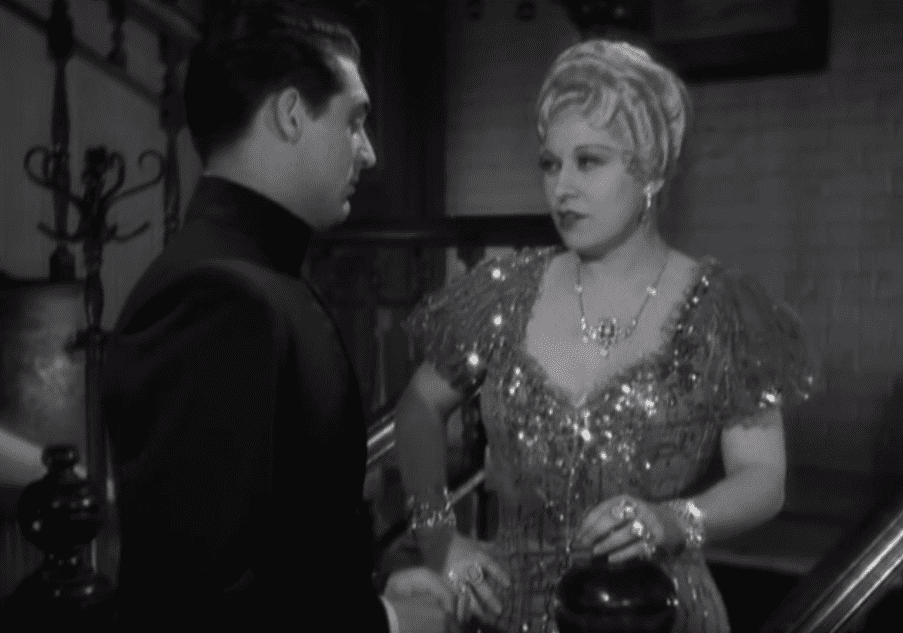 She Done Him Wrong, Paramount Pictures
She Done Him Wrong, Paramount Pictures
35. She Knew How To Make A Hit
Mae West wanted to bring one of her best-known stage characters, Diamond Lil, to the screen. She got her wish, and Diamond Lil became She Done Him Wrong’s Lady Lou. Not only did West encourage Paramount to cast a then-unknown Cary Grant as her co-star, she also insisted that a black actor be added to the cast. It was a gamble, but it paid off.
The film was a huge success and won Best Picture at the Oscars. West was flying high and breaking boundaries—both on and off-screen.
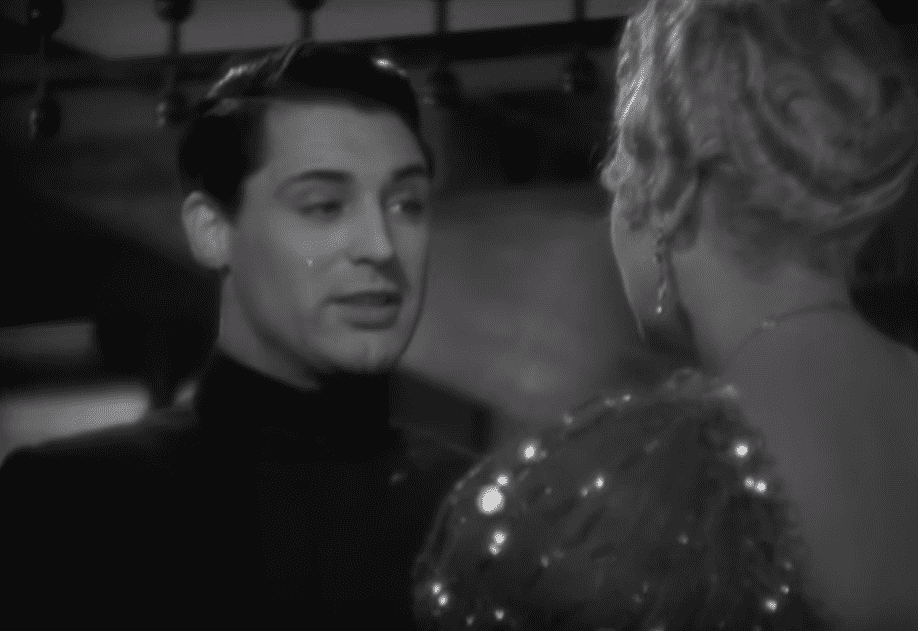 She Done Him Wrong, Paramount Pictures
She Done Him Wrong, Paramount Pictures
36. She Didn’t Let Anyone Bring The People She Cared About Down
When West moved to Hollywood, she moved into a building called The Ravenswood. It was one of her few relationships built to last, as she stayed there until her passing—but it wasn’t always a happy one. When West began to date Black boxing champ Gorilla Jones, management banned him from the building on account of his race. West’s reaction was unforgettable.
She purchased the building and got rid of the ban. Sadly, it wasn’t the only romantic trouble she had to deal with.
37. Her Secret Came Out
Mae West wasn’t shy when it came to talking to the press about her romantic conquests—but there was one subject that was off-limits. Or at least, it was, until journalists unearthed her scandalous secret. Someone dug up evidence of her marriage to Frank Wallace in 1935. West denied it, but Wallace went to court to get them to recognize the marriage. The tabloids went into an uproar—and when the battle looked like it might not work in her favor, West was uncharacteristically silent.
Squabbles in and out of court continued for seven more years, before West finally ditched Wallace for good, paying him off, as she said, with some blue-chip stocks. If she wasn’t already sour on marriage before, this did it…
38. They Were After Her
Mae West had fought against multiple acts of censorship as a Broadway star—but they were nothing compared to what she faced in Hollywood. Conservatives and religious types had been wringing their hands about film’s "immoral" content for years, and they were finally making headways. It came to a head when the Independent Theatre Owners Association labeled West, among other stars, as "Box Office Poison" in an infamous list.
West had always made controversy and censorship work for her in the past, and used it to play up her image. Well, this time, she couldn’t.
39. She Hit Rock Bottom
Studios, hoping to adhere to the new Hays Production Code, found it hard to place her in any film—especially knowing how likely she was to go off script to make her characters even saucier. It frustrated West to have opportunity snatched from her at the moment where she’d been one of Hollywood’s biggest stars. So, in a refusal to compromise, she just saved all her most charged material for another medium.
40. They Kicked Her Off The Airwaves
When Mae West went on the radio to promote her film Every Day’s A Holiday in 1937, the hosts had no idea what they were in for. After a series of characteristically suggestive broadcasts, the nation’s prudes deluged the FCC with complaints. The station’s reaction was devastating. Not only did NBC radio put all of the blame on West, they also banned her and her name from the station.
West did what she always did, and tried to use it to her advantage.
41. She Returned To What She Knew Best
Instead of dealing with the puritanical rules overtaking Hollywood, Mae West set her sights on a new world to conquer. That would be Sin City itself, Las Vegas. Whenever West was in between roles, she returned to the world where she’d once made her name—singing on stage and in nightclubs. And, it worked. Censors be darned. After more than two decades in the biz, critics were finally recognizing Mae West for the institution that she was.
Still, having the studios shut her out of films had been frustrating—and she carried it with her.
42. She Lost A True Friend
Despite the fact that Mae West had ended her romantic relationship with James Timony in the mid-1930s, they remained close friends and associates. When Timony perished suddenly in 1951, West’s reaction was heartbreaking. The loss so devastated her that she had to get her sister and brother to plan his funeral, as she was incapable. Timony had exhibited unwavering faith in her, and echoed her belief that she was the star in Hollywood most worthy of fame.
She didn’t have any other strong allies like him left in her life—but before long, she’d find one in a surprising place.
43. She Gave Her Fans A Treat
West through herself into her new show as a way to deal with grief, and came up with a novel idea. Long before Chippendales or Magic Mike, West recruited a slew of bodybuilders to join her onstage as she sang in her Vegas act. As she said, she enjoyed looking at male bodies so much—and she hoped her female audience would too.
It’s no surprise that she soon began calling some of her co-stars to her hotel room at night—but no one actually expected her to fall in love.
44. She Liked Some Better Than Others
West feuded with some of her bodybuilder co-stars and slept with others, but one stood out from the pack. Chester Rybinski—a name he later changed to Paul Novak—was 31, which meant that he was 30 years younger than Mae West. They would wind up in a passionate romance…but not without a little drama first. At the time, the top-billed guy in West’s show was the reigning Mr. Universe, Mickey Hargitay.
From the beginning, West sensed that he was a publicity seeker—and boy, was she ever right.
45. She Insulted Him
Hargitay soon got together with blonde bombshell Jayne Mansfield, and the trio traded barbs in the papers, with West belittling the couple, and them calling her old and insinuating she was jealous. Finally, when another Mr. Universe was crowned, West invited some press to the hotel to talk about how she’d now shuffle Hargitay to the back of the pile.
What she hadn’t counted on was him showing up.
46. He Protected Her
Hargitay burst into West’s room to defend his good name, only for Novak to see him approach West and pop him in the nose. During the melee, someone knocked West to the floor. She yelled, and it went all the way to court. Novak claimed self-dense—but as always, Mae West came out on top. The publicity made it look like two younger men were fighting over her, and Novak was a great pick for a new paramour.
He supported her and believed in her unconditionally, just as James Timony had before his passing. But there was lot more to their relationship than just support.
47. They Had Strange Hobbies
Novak was undeniably a positive influence on West. They went swimming together and he encouraged her to give up sweets and cooked healthy meals for her. But they also had a bizarre side. West was fascinated by the supernatural, and Novak joined her in that. For a time, they hosted a man who claimed to be a psychic, sometimes inviting 50 of their friends over at once to his demonstrations.
We don’t know if the psychic ever managed to help her get in touch with her dearly departed mother or anyone else—but he was instrumental in getting her a part on Mister Ed (a producer of the show was also a fan of his).
48. She Tried A Comeback
By 1970, it had been 27 long years since Mae West had appeared on film. Some would’ve given up on Hollywood—but not West. She made her long-awaited comeback playing a "female impersonator" in Myra Breckinridge. The production was a disaster, but there was an unexpected side effect. Younger audiences caught on to her campy appeal and lauded her for pushing back against censorship.
Still, she was mad about the failure. Not one of her films had been a hit since…she’d last been the one penning the script. Well, that was a problem that was easy to solve.
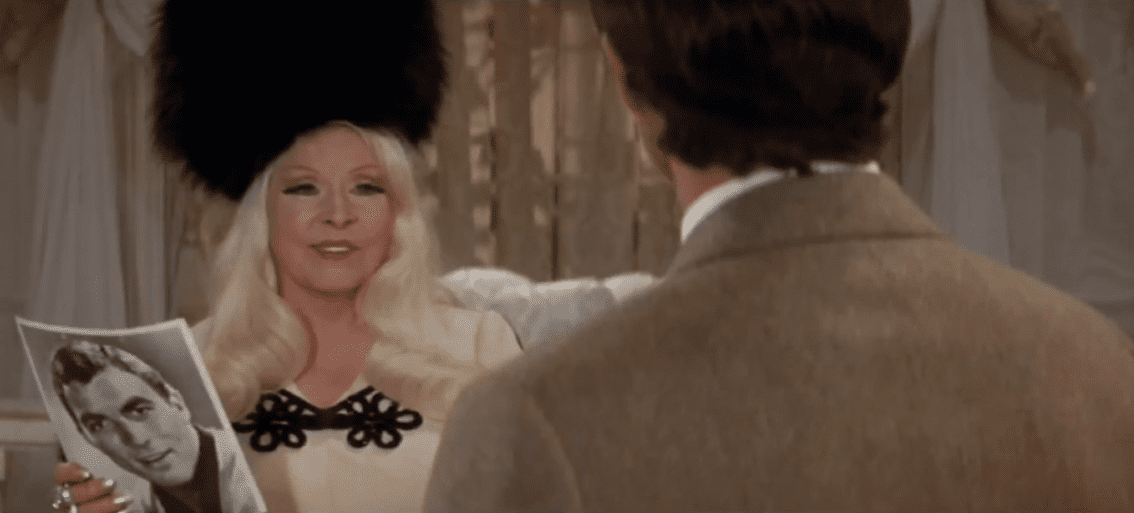 Myra Breckenridge, Twentieth Century Fox
Myra Breckenridge, Twentieth Century Fox
49. She Gave It One Last Try
Mae West’s swan song was the campy and bizarre Sextette, for which she served as screenwriter and star, despite her advancing age. A young Timothy Dalton played her husband, and figures as diverse as Alice Cooper, Regis Philbin, and Ringo Starr took up other roles. It was a bit more of an adventure than she intended it to be, though.
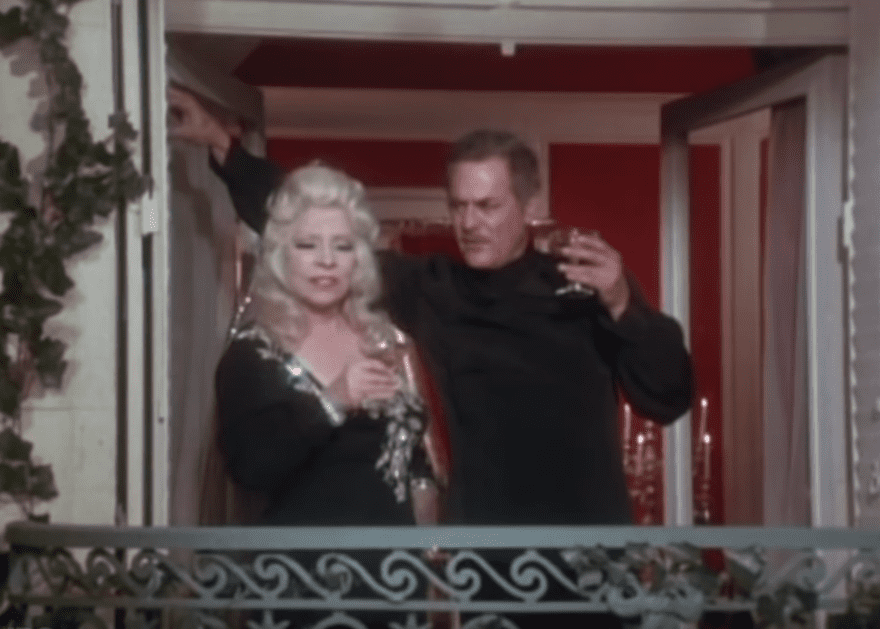 Sextette, Crown International Pictures
Sextette, Crown International Pictures
50. She Couldn’t Keep Up
West was 85 when she made Sextette, and sadly showing her age. After last-minute script changes, West had to wear an earpiece so that the director could feed her lines. On top of that, her hearing was so bad that she didn’t hear him yell "Cut!" during a scene filmed partly in an elevator—and so she accidentally stayed in the elevator for half an hour afterward.
Unfortunately, West’s last Hollywood stand was a complete and total box office flop.
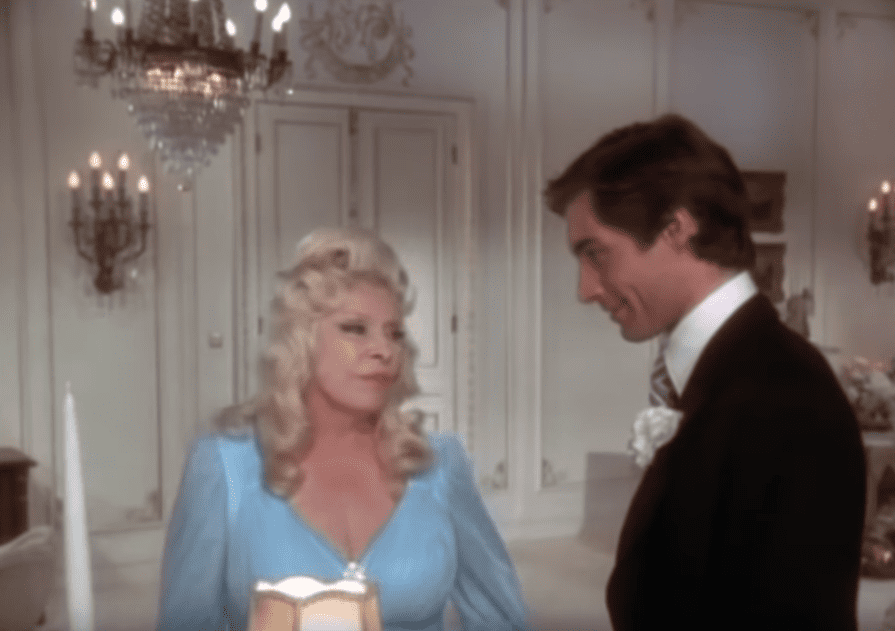 Sextette, Crown International Pictures
Sextette, Crown International Pictures
51. She Thought They Were Against Her
Sadly, in her final years, West was preoccupied with paranoia and her fascination with what she called "the Forces". After a luncheon where the host had seated Novak beside another woman, West complained that she’d coughed up blood and a piece of glass. She implied that the woman was responsible—but the truth was likely much more sinister. The bleeding could’ve been the sign of a blood vessel rupturing in the brain.
This type of injury usually heals on its own—but it can also sometimes be a precursor to a stroke.
52. He Truly Loved Her
In her final years, Mae West took care of her sister Beverly, who’d had a rough go of it. In turn, Paul Novak took care of her. He devised a program of exercises for her. After doctors diagnosed her with diabetes, he kept her away from desserts (as best he could) and helped administer insulin. The measure of his devotion was absolutely touching.
53. She Was Fading Away
Novak once said: "I believe I was put on this Earth to take care of Mae West". And that was exactly what he did—until tragedy struck. In August of 1980, West fell at home and had to be hospitalized. Doctors later discovered that she’d had a stroke. In September, she had another. Novak slept on a cot in her room to keep an eye on her.
Finally, after three months in hospital, he swallowed his optimism and made plans for her to spend her final days at home.
54. She Was Surrounded By Those She Loved
On November 22, 1980, Mae West passed on in her home with her beloved partner and a handful of her closest friends by her side. She had spent her entire life making herself into a legend—and Novak quickly realized that any grandiose memorial service he planned wouldn’t measure up to her ability to craft her own image.
West’s loved ones held a small, private funeral service. But lest we forget, Mae West was the queen of controversy—and over the years, she had faced some absolutely jaw-dropping accusations.
55. They Couldn’t Stop Talking About Her
Mae West had heard her fair share of strange accusations over the years—some more bizarre than others. Here is a selection of some of the more bizarre and hilarious ones. Despite her reputation in the bedroom, it was rumored that she was actually frigid. It was also rumored that she possessed both male and female reproductive organs; had undergone the world’s first gender reassignment operation; that she was actually a virgin; and that she was a man in drag.
And, as the obituaries and memorials rolled in after her passing, so did the retellings of her greatest, most jaw-dropping scandal of all.
56. Things Got Out Of Control
Mae West lived through plenty of scandals in her life—but none ever compared to the dark fate of her infamous play Sex. West had always intended it to be controversial, but initially, the play ran without much of a problem for months on end. It was wildly successful—but then it all came to a disturbing turning point one fateful night in February 1927.
That night, officers burst into the theater and detained West and several other performers. Despite her annoyance, West was actually thrilled.
57. She Used It To Her Advantage
Aside from being a talented performer and writer, she was also a shrewd businesswoman. She was more than ready to work the raid to her advantage—and that’s exactly what she did. West spent the night in a women’s prison and the next day got her boyfriend at the time, James Timony, to file an injunction against any interference with the show. On the next night, when officers showed up, West proudly brandished the restraining order against them.
Eventually, they charged her with maintaining a public nuisance and producing an immoral show. And, as you can guess, she faced it all in typical Mae West style.
58. She Proclaimed Her Innocence
For each court appearance, Mae West draped herself in black satin and furs, and then showed up to innocently declare that her play had no bare skin or profanity, making it "one of the cleanest shows on Broadway". West and her associates were extremely confident that they’d face no consequences for her play, risqué or not—and it completely blew up in her face.
The jury found them guilty of producing an immoral play. Next, West had to wait for her sentence.
59. She Was A Model Prisoner
The court ordered Mae West to serve ten days in lockup and pay a $500 fine. As West herself stated, the publicity was worth so much more than $500 that it was basically a bargain. West also didn’t hold back from sharing a no-doubt embellished account of her days in prison. She claimed that the warden had let her keep her silk panties instead of the standard-issue cotton offerings. West even said that the warden took her riding in the evenings—and the story didn’t end there.
60. It Made Her An Icon
After all of that, they released her eight days into her ten-day sentence—for good behavior, of course. This story—and so many others like it—did exactly what Mae West intended. It not only cemented her position as someone who stood against censorship. It also propelled her status as the absolute legend that we know her as today, nearly 100 years on.

